

Editing and Proofreading
What this handout is about.
This handout provides some tips and strategies for revising your writing. To give you a chance to practice proofreading, we have left seven errors (three spelling errors, two punctuation errors, and two grammatical errors) in the text of this handout. See if you can spot them!
Is editing the same thing as proofreading?
Not exactly. Although many people use the terms interchangeably, editing and proofreading are two different stages of the revision process. Both demand close and careful reading, but they focus on different aspects of the writing and employ different techniques.
Some tips that apply to both editing and proofreading
- Get some distance from the text! It’s hard to edit or proofread a paper that you’ve just finished writing—it’s still to familiar, and you tend to skip over a lot of errors. Put the paper aside for a few hours, days, or weeks. Go for a run. Take a trip to the beach. Clear your head of what you’ve written so you can take a fresh look at the paper and see what is really on the page. Better yet, give the paper to a friend—you can’t get much more distance than that. Someone who is reading the paper for the first time, comes to it with completely fresh eyes.
- Decide which medium lets you proofread most carefully. Some people like to work right at the computer, while others like to sit back with a printed copy that they can mark up as they read.
- Try changing the look of your document. Altering the size, spacing, color, or style of the text may trick your brain into thinking it’s seeing an unfamiliar document, and that can help you get a different perspective on what you’ve written.
- Find a quiet place to work. Don’t try to do your proofreading in front of the TV or while you’re chugging away on the treadmill. Find a place where you can concentrate and avoid distractions.
- If possible, do your editing and proofreading in several short blocks of time. Your concentration may start to wane if you try to proofread the entire text at one time.
- If you’re short on time, you may wish to prioritize. Make sure that you complete the most important editing and proofreading tasks.
Editing is what you begin doing as soon as you finish your first draft. You reread your draft to see, for example, whether the paper is well-organized, the transitions between paragraphs are smooth, and your evidence really backs up your argument. You can edit on several levels:
Have you done everything the assignment requires? Are the claims you make accurate? If it is required to do so, does your paper make an argument? Is the argument complete? Are all of your claims consistent? Have you supported each point with adequate evidence? Is all of the information in your paper relevant to the assignment and/or your overall writing goal? (For additional tips, see our handouts on understanding assignments and developing an argument .)
Overall structure
Does your paper have an appropriate introduction and conclusion? Is your thesis clearly stated in your introduction? Is it clear how each paragraph in the body of your paper is related to your thesis? Are the paragraphs arranged in a logical sequence? Have you made clear transitions between paragraphs? One way to check the structure of your paper is to make a reverse outline of the paper after you have written the first draft. (See our handouts on introductions , conclusions , thesis statements , and transitions .)
Structure within paragraphs
Does each paragraph have a clear topic sentence? Does each paragraph stick to one main idea? Are there any extraneous or missing sentences in any of your paragraphs? (See our handout on paragraph development .)
Have you defined any important terms that might be unclear to your reader? Is the meaning of each sentence clear? (One way to answer this question is to read your paper one sentence at a time, starting at the end and working backwards so that you will not unconsciously fill in content from previous sentences.) Is it clear what each pronoun (he, she, it, they, which, who, this, etc.) refers to? Have you chosen the proper words to express your ideas? Avoid using words you find in the thesaurus that aren’t part of your normal vocabulary; you may misuse them.
Have you used an appropriate tone (formal, informal, persuasive, etc.)? Is your use of gendered language (masculine and feminine pronouns like “he” or “she,” words like “fireman” that contain “man,” and words that some people incorrectly assume apply to only one gender—for example, some people assume “nurse” must refer to a woman) appropriate? Have you varied the length and structure of your sentences? Do you tends to use the passive voice too often? Does your writing contain a lot of unnecessary phrases like “there is,” “there are,” “due to the fact that,” etc.? Do you repeat a strong word (for example, a vivid main verb) unnecessarily? (For tips, see our handouts on style and gender-inclusive language .)
Have you appropriately cited quotes, paraphrases, and ideas you got from sources? Are your citations in the correct format? (See the UNC Libraries citation tutorial for more information.)
As you edit at all of these levels, you will usually make significant revisions to the content and wording of your paper. Keep an eye out for patterns of error; knowing what kinds of problems you tend to have will be helpful, especially if you are editing a large document like a thesis or dissertation. Once you have identified a pattern, you can develop techniques for spotting and correcting future instances of that pattern. For example, if you notice that you often discuss several distinct topics in each paragraph, you can go through your paper and underline the key words in each paragraph, then break the paragraphs up so that each one focuses on just one main idea.
Proofreading
Proofreading is the final stage of the editing process, focusing on surface errors such as misspellings and mistakes in grammar and punctuation. You should proofread only after you have finished all of your other editing revisions.
Why proofread? It’s the content that really matters, right?
Content is important. But like it or not, the way a paper looks affects the way others judge it. When you’ve worked hard to develop and present your ideas, you don’t want careless errors distracting your reader from what you have to say. It’s worth paying attention to the details that help you to make a good impression.
Most people devote only a few minutes to proofreading, hoping to catch any glaring errors that jump out from the page. But a quick and cursory reading, especially after you’ve been working long and hard on a paper, usually misses a lot. It’s better to work with a definite plan that helps you to search systematically for specific kinds of errors.
Sure, this takes a little extra time, but it pays off in the end. If you know that you have an effective way to catch errors when the paper is almost finished, you can worry less about editing while you are writing your first drafts. This makes the entire writing proccess more efficient.
Try to keep the editing and proofreading processes separate. When you are editing an early draft, you don’t want to be bothered with thinking about punctuation, grammar, and spelling. If your worrying about the spelling of a word or the placement of a comma, you’re not focusing on the more important task of developing and connecting ideas.
The proofreading process
You probably already use some of the strategies discussed below. Experiment with different tactics until you find a system that works well for you. The important thing is to make the process systematic and focused so that you catch as many errors as possible in the least amount of time.
- Don’t rely entirely on spelling checkers. These can be useful tools but they are far from foolproof. Spell checkers have a limited dictionary, so some words that show up as misspelled may really just not be in their memory. In addition, spell checkers will not catch misspellings that form another valid word. For example, if you type “your” instead of “you’re,” “to” instead of “too,” or “there” instead of “their,” the spell checker won’t catch the error.
- Grammar checkers can be even more problematic. These programs work with a limited number of rules, so they can’t identify every error and often make mistakes. They also fail to give thorough explanations to help you understand why a sentence should be revised. You may want to use a grammar checker to help you identify potential run-on sentences or too-frequent use of the passive voice, but you need to be able to evaluate the feedback it provides.
- Proofread for only one kind of error at a time. If you try to identify and revise too many things at once, you risk losing focus, and your proofreading will be less effective. It’s easier to catch grammar errors if you aren’t checking punctuation and spelling at the same time. In addition, some of the techniques that work well for spotting one kind of mistake won’t catch others.
- Read slow, and read every word. Try reading out loud , which forces you to say each word and also lets you hear how the words sound together. When you read silently or too quickly, you may skip over errors or make unconscious corrections.
- Separate the text into individual sentences. This is another technique to help you to read every sentence carefully. Simply press the return key after every period so that every line begins a new sentence. Then read each sentence separately, looking for grammar, punctuation, or spelling errors. If you’re working with a printed copy, try using an opaque object like a ruler or a piece of paper to isolate the line you’re working on.
- Circle every punctuation mark. This forces you to look at each one. As you circle, ask yourself if the punctuation is correct.
- Read the paper backwards. This technique is helpful for checking spelling. Start with the last word on the last page and work your way back to the beginning, reading each word separately. Because content, punctuation, and grammar won’t make any sense, your focus will be entirely on the spelling of each word. You can also read backwards sentence by sentence to check grammar; this will help you avoid becoming distracted by content issues.
- Proofreading is a learning process. You’re not just looking for errors that you recognize; you’re also learning to recognize and correct new errors. This is where handbooks and dictionaries come in. Keep the ones you find helpful close at hand as you proofread.
- Ignorance may be bliss, but it won’t make you a better proofreader. You’ll often find things that don’t seem quite right to you, but you may not be quite sure what’s wrong either. A word looks like it might be misspelled, but the spell checker didn’t catch it. You think you need a comma between two words, but you’re not sure why. Should you use “that” instead of “which”? If you’re not sure about something, look it up.
- The proofreading process becomes more efficient as you develop and practice a systematic strategy. You’ll learn to identify the specific areas of your own writing that need careful attention, and knowing that you have a sound method for finding errors will help you to focus more on developing your ideas while you are drafting the paper.
Think you’ve got it?
Then give it a try, if you haven’t already! This handout contains seven errors our proofreader should have caught: three spelling errors, two punctuation errors, and two grammatical errors. Try to find them, and then check a version of this page with the errors marked in red to see if you’re a proofreading star.
Works consulted
We consulted these works while writing this handout. This is not a comprehensive list of resources on the handout’s topic, and we encourage you to do your own research to find additional publications. Please do not use this list as a model for the format of your own reference list, as it may not match the citation style you are using. For guidance on formatting citations, please see the UNC Libraries citation tutorial . We revise these tips periodically and welcome feedback.
Especially for non-native speakers of English:
Ascher, Allen. 2006. Think About Editing: An ESL Guide for the Harbrace Handbooks . Boston: Wadsworth Cengage Learning.
Lane, Janet, and Ellen Lange. 2012. Writing Clearly: Grammar for Editing , 3rd ed. Boston: Heinle.
For everyone:
Einsohn, Amy. 2011. The Copyeditor’s Handbook: A Guide for Book Publishing and Corporate Communications , 3rd ed. Berkeley: University of California Press.
Lanham, Richard A. 2006. Revising Prose , 5th ed. New York: Pearson Longman.
Tarshis, Barry. 1998. How to Be Your Own Best Editor: The Toolkit for Everyone Who Writes . New York: Three Rivers Press.
You may reproduce it for non-commercial use if you use the entire handout and attribute the source: The Writing Center, University of North Carolina at Chapel Hill
Make a Gift
- How it works
How to Edit and Proofread a Dissertation – List of Do’s and Don’ts
Published by Ellie Cross at January 26th, 2023 , Revised On April 6, 2023
Many students ask us how to edit and proofread a dissertation. Editing and proofreading a dissertation is a crucial task that you need to handle with care. It is because the quality of your work will depend on how well you do it.
Once you have finished writing your dissertation , there are still some things left to do before you can submit it for review. This includes editing and proofreading it.
Editing is the process of correcting any mistakes in your paper. It’s also about making sure that your arguments are coherent, that there are no errors in grammar or spelling, etc. We can make your editing process easier with our tips for editing a dissertation.
On the other hand, Proofreading is the last step in this process. It means reading through your paper one more time and checking whether there are any remaining mistakes or typos (typos are spelling errors).
Here is a list of Do’s and Don’ts when editing and proofreading your dissertation:
Tips for Proofreading a Dissertation
Proofreading is an important step. here are some tips for proofreading a dissertation. .
- Grammar Check: Make sure the spelling and grammar are correct. If there are any mistakes, correct them immediately before you move on to the next step.
- Read your dissertation at least twice before submitting it to your professor or supervisor for review. The first read should be done without making any changes so you can get an idea about what needs to be changed in your paper. The second read should focus on fixing all the mistakes found during the first reading process so that they do not appear in front of your professor or supervisor during their review process.
- Tense changes – remember that past tense is used for events in the past, present tense for events happening at the time of writing, and future tense for events predicted to happen in the future. If you mix these tenses, you could confuse your reader.
- Adjective agreement – ensure all adjectives agree with their nouns in number (singular or plural) and gender (masculine or feminine).
- Punctuation – use commas correctly, especially when separating items in lists; use semicolons correctly; use colons correctly; don’t forget apostrophes!
- Spelling – always check your spelling before sending off your work.
Pro Tips for Dissertation Editing
Editing can be hectic and complicated. but these tips for editing a dissertation can help you out..
- Get a fresh pair of eyes to look at it: Get someone else to read it, preferably someone who isn’t too close to the project or your research topic, so they can see errors that might have been missed by yourself or others. They will also be able to give you feedback on whether they understand what you are writing about and whether they think it is relevant enough for their field of interest. If not, this should lead to changes in the structure and style of your writing, making it more accessible for readers from different backgrounds.
- Write down the Guidelines: Write down all suggestions your professor or supervisor gave regarding corrections and make necessary changes according to their instructions
- Don’t assume that your supervisor knows how to edit or proofread: Your supervisor has been working with you throughout your project, so they may be able to spot spelling mistakes or punctuation errors when reading through your draft chapter summaries or other documents, such as the research proposal or methodology section. However, they may not know how best to edit and proofread a dissertation, so always ask them if there is anything specific that needs changing before sending anything off for review by your professor.
- Don’t get tired or stressed before the editing process starts: You have spent a lot of time working on this project, so make sure you don’t get tired or stressed before editing it. It is important to take breaks and rest whenever you need them. On the other hand, don’t push yourself too hard–take as much time as you need until you feel ready to start editing.
- Don’t panic if everything seems too difficult at first glance: Everything may look overwhelming at first glance – there are lots of pages full of text and information but don’t panic! It is easier than it seems, especially if you know how to organise all these materials properly.
- Read everything carefully: Don’t skip any parts of your dissertation while editing it.
Reading every word from the beginning to the end when editing your paper is very important. Don’t skip any sections or parts.
Other dissertation writing guides: How to start writing a dissertation , How to structure a dissertation , How to choose a topic for dissertation .
Order a Proposal
Worried about your dissertation proposal? Not sure where to start?
- Choose any deadline
- Plagiarism free
- Unlimited free amendments
- Free anti-plagiarism report
- Completed to match exact requirements

Don’ts for Proofreading and Editing
- Don’t read through the text too quickly–you will miss spelling mistakes if you do this.
- use a word processor–if you do this, many of its features will change your writing style without you noticing.
- rely on a spellchecker to catch all your mistakes–they won’t pick up subject-verb agreement errors or words spelt correctly but used incorrectly (e.g., affect/effect)
- Don’t leave corrections until the very end–you need to be able to edit at every stage of the process to catch problems early.
- Don’t rush it–take plenty of time to write and edit your work properly.
- Don’t rewrite whole sections–fix errors in individual words or sentences instead.
- Don’t be afraid of deleting too much! It is better to delete unnecessary parts than leave them in your dissertation without correcting them properly.
- Don’t rush through the editing process–Take your time, as rushing through the editing process will only result in more mistakes! Make sure you understand each section fully before moving on to the next one.
- Make sure you don’t use too many complex words or unusual expressions which might confuse readers.
- Avoid passive voice constructions; use active voice instead! It makes your writing easier to understand!
- Remove unnecessary words from sentences and paragraphs–they make texts less concise!
Proofreading and editing are daunting tasks. It is a job many new PhDs must face during their research and writing process. To get better, you can take some help from the above pro tips for dissertation editing and proofreading . However, it needs skills that go beyond grammar and spelling. It would be best if you become aware of the challenges facing you when starting the task of proofreading and editing a dissertation.
If you think you can not do this on your own, don’t be afraid to ask for help. Because proofreading and editing sometimes require a second eye. We are here for you to do this. We have been providing professional proofreading and editing services for many years.
Whether you require a single-page proofread or a full dissertation, our array of academic editing services can deliver. The editing and proofreading services we provide can be as simple and straightforward as standard proofreading or as extensive as complete editing of all parts of your assignment or article.
To be certain about what you will get and for the best quality, each stage is overseen by one of our skilled experts . We are confident that we now edit and proofread more than any other online organisation, providing clients with the highest level of attention and quality they deserve.
You May Also Like
The essay writing process involves finding a suitable topic, preparing notes or outlines, research, and revisions. So how long will it take?
Are you about to shift to a university housing accommodation? Consider these three things before shifting to have a comfortable time.
What are the key factors influencing language development and what can do to accelerate the process of language acquisition? Here is all you need to know!
USEFUL LINKS
LEARNING RESOURCES

COMPANY DETAILS

- How It Works
[email protected]
- English English Spanish German French Turkish
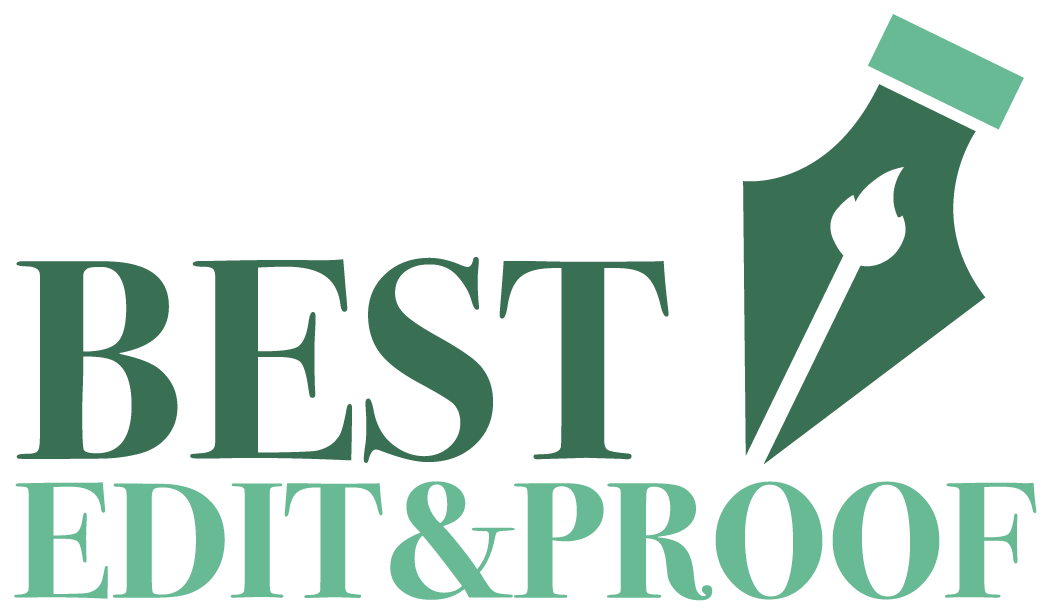
4 Vital Tips for Editing a Dissertation
It is no wonder that many scholars dread the editing process and harbor numerous concerns even before they start it. They become skeptical about their academic writing abilities and are more prone to make fundamental mistakes. However, if approached strategically and in an organized manner, editing a dissertation and academic documents can become a much easier task. This article lists and explains four editing guidelines that writers must implement to edit their dissertations efficiently.

Editing a dissertation is one of the most arduous undertakings for scholars pursuing a doctoral program. After putting in painstaking efforts to
choose a dissertation topic
formulate a research strategy
carry out the research
record the results, and
draft a dissertation document around their research work
Scholars must also ensure that their manuscripts are free from linguistic, tonal, structural, contextual, and factual errors and inconsistencies. In addition, the documents should abide by a set of rigid academic writing and formatting guidelines to become eligible for submission.
Thus, it is no wonder that many scholars dread the editing process and harbor numerous concerns even before they start it. They become skeptical about their academic writing abilities and are more prone to make fundamental mistakes. However, if approached strategically and in an organized manner, editing a dissertation and academic documents can become a much easier task. This article lists and explains four editing guidelines that writers must implement to edit their dissertations efficiently.
Four tips for editing a dissertation
The tips mentioned here are not specific to dissertation editing, and one can also employ them when editing other academic documents.
1. Allotting sufficient time to the process
Dissertations are lengthy and extensive documents spanning hundreds of pages and comprising tens of thousands of words. According to Harvard University, a typical dissertation can go well above a hundred pages .
It is common that the editing process takes significantly more hours than the writing stage. This is because editing a dissertation requires one to meticulously scrutinize each and every section of it with equal emphasis. Hence, before initiating the editing process, scholars should ensure that they can expend enough time on it. They should record the submission deadline and accordingly schedule the days left to polish their manuscripts optimally.
Also, when dedicating time to editing their manuscripts, scholars should consult their supervisors or instructors to get an estimate of the number of hours or days required for the process. Doing so helps one design a flexible editing schedule that can effortlessly accommodate any unexpected delays.
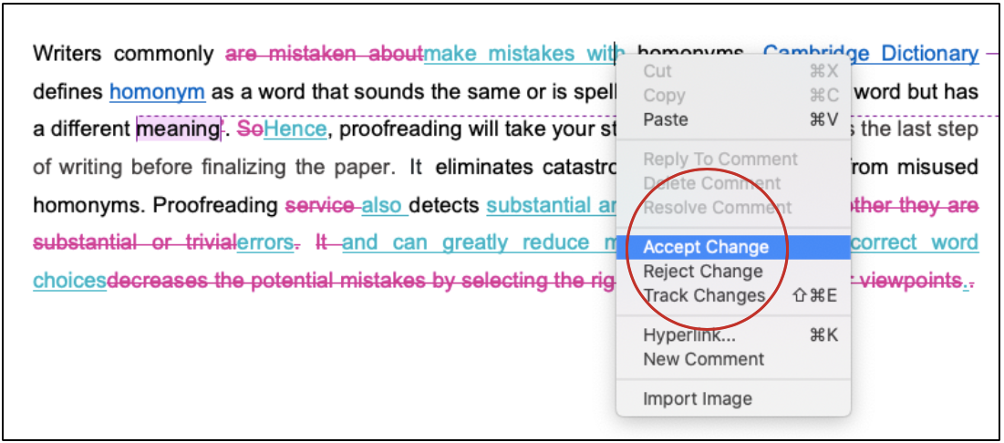
2. Listing and prioritizing all the elements of the dissertation
A dissertation generally consists of the following five chapters:
Introduction
Literature review
Methodology
However, depending upon the subject matter, one can come across dissertations consisting of more than five sections .
The second editing tip on this list states that scholars should assess which section will take the most amount of time. Subsequently, they should make a priority list and assign positions to the sections based on their temporal requirements. Working with a priority list allows scholars to dedicate adequate time and resources to each chapter in their manuscript.
3. Not editing ceaselessly
Editing dissertations, or for that matter, any academic document, is a mentally exhausting task. It demands unfettered focus, consistency, and the ability to perform several operations simultaneously. Hence, one is bound to get drained and suffer from mental and physical fatigue after editing for prolonged periods.
Exhaustion is a common phenomenon that all editors come across at regular intervals. However, if one is pushing themselves even after reaching the point of exhaustion, the chances are higher that their quality of work will drop exponentially. Thus, scholars should take occasional breaks to not let the fatigue set in.
4. Considering a second opinion
In most cases, a single individual handles all editing duties from start to finish, and they do it successfully. However, there are circumstances when some edits can go unnoticed even after repeated scrutiny. This typically happens when a scholar is new to editing academic documents.
For instance, dissertations are ideally supposed to be objective. However, if a scholar assumes a rigid viewpoint, the chances are that certain statements might make sense to them but not to others. To deal with such discrepancies, taking the opinion of others, preferably an experienced scholar, is the ideal solution. Gathering opinions from others allows scholars to sift through several fresh perspectives. They can then collectively utilize them to heighten the objectivity of their dissertations and augment their readability.
Editing a dissertation: Synopsis
Editing a dissertation is equally, if not more important than the drafting and revising stages. It ensures that an academic text is legible, credible, and relays the message its writer intended when writing it. Thus, scholars should make it an objective to learn to edit their manuscripts effectively and put in the required efforts to realize it. However, they should not do so haphazardly. Instead, they should base their learning efforts on the aforementioned dissertation editing tips and watch their learning curve steepen sharply.
If you need us to make your manuscript shine, contact us unhesitatingly!
Best Edit & Proof expert editors and proofreaders focus on offering manuscripts with proper tone, content, and style of academic writing, and also provide an upscale editing and proofreading service for you. If you consider our pieces of advice, you will witness a notable increase in the chance for your research manuscript to be accepted by the publishers. We work together as an academic writing style guide by bestowing subject-area editing and proofreading around several categorized writing styles. With the group of our expert editors, you will always find us all set to help you identify the tone and style that your manuscript needs to get a nod from the publishers.
English manuscript formatting service
You can also avail of our assistance if you are looking for editors who can format your manuscript, or just check on the particular styles for the formatting task as per the guidelines provided to you, e.g., APA, MLA, or Chicago/Turabian styles. Best Edit & Proof editors and proofreaders provide all sorts of academic writing help, including editing and proofreading services, using our user-friendly website, and a streamlined ordering process.
Get a free quote for editing and proofreading now!
Visit our order page if you want our subject-area editors or language experts to work on your manuscript to improve its tone and style and give it a perfect academic tone and style through proper editing and proofreading. The process of submitting a paper is very easy and quick. Click here to find out how it works.
Our pricing is based on the type of service you avail of here, be it editing or proofreading. We charge on the basis of the word count of your manuscript that you submit for editing and proofreading and the turnaround time it takes to get it done. If you want to get an instant price quote for your project, copy and paste your document or enter your word count into our pricing calculator.

24/7 customer support | Live support
Contact us to get support with academic editing and proofreading. We have a 24/7 active live chat mode to offer you direct support along with qualified editors to refine and furbish your manuscript.
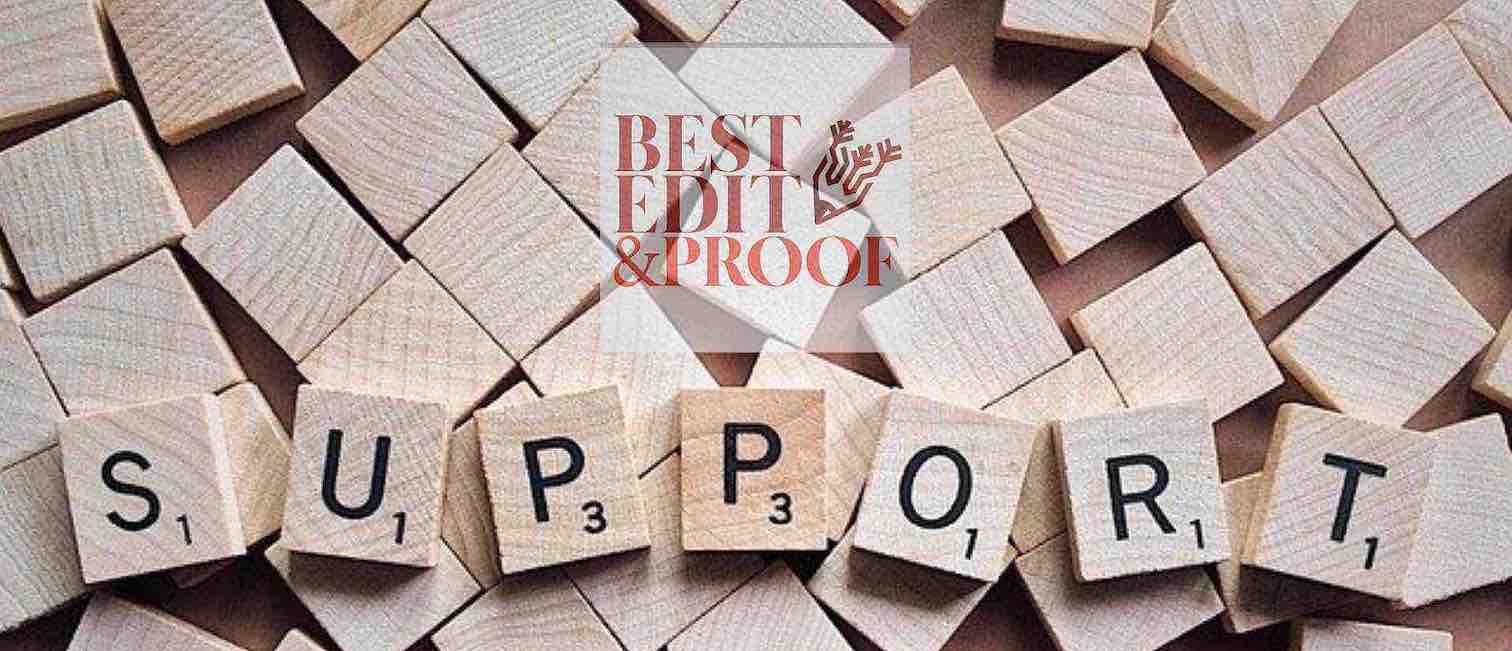
Stay tuned for updated information about editing and proofreading services!
Follow us on Twitter, LinkedIn, Facebook, Instagram, and Medium .
For more posts, click here.
This article gives you four helpful tips for editing a dissertation. To give you an opportunity to practice proofreading, we have left a few spelling, punctuation, or grammatical errors in the text. See if you can spot them! If you spot the errors correctly, you will be entitled to a 10% discount.
- Editing & Proofreading
- Citation Styles
- Grammar Rules
- Academic Writing
- Proofreading
- Microsoft Tools
- Academic Publishing
- Dissertation & Thesis
- Researching
- Job & Research Application
Similar Posts
How Much Do Professional Editing and Proofreading Cost?
How Much Do Proofreading and Editing Cost?
How to Choose a Dissertation Editor in 3 Steps
8 Proofreading Tips: Everything to Understand the Process
Recent Posts
How to Determine Variability in a Dataset
How to Determine Central Tendency
ANOVA vs MANOVA: Which Method to Use in Dissertations?
How to Specify Study Variables in Research Papers?
Population vs Sample | Sampling Methods for a Dissertation
They Also Read

There is always a possibility that your paper may have some errors and that you may have missed some important issues as you were intensely involved in the writing process. In finalizing your writing, it is always helpful to have it edited professionally. Hence, this phase typically demands a fresh pair of eyes to identify and correct any error you may have missed. You might be surprised at the errors an editor would detect that you may have missed. That is why English language experts always recommend that authors should not rely merely on their own improvements and corrections.

For anyone in the writing field, editing and proofreading are essential parts of the writing process that you just can’t skip over. To give you more clarity, these two services help make your work better. Be it from small grammatical errors to give structural improvisation, editing and proofreading is the trick to turn your piece from average to excellent. With that in mind, today, we will go through everything that you need to learn about editing and proofreading — what they are, the basic difference, and lastly, why they are important.

Proofreaders check the grammatical, punctuation, spelling, and formatting errors of a document and create a proofreading checklist to track the revisions for a flawlessly written academic paper. The type of checklist proofreaders choose to utilize depends on the type of paper (e.g., dissertations, essays, e-books, or blog posts) they are working on.

The editing and proofreading industry is expanding more than ever, thanks to a constant demand for editors and proofreaders. If you are any good and have aspirations to be a part of this industry, simply being good is not enough. To be better, you need to perfect your editing and proofreading skills. However, such things are easier said than done. After all, this field is all about techniques and experience accumulated over years of practice. This article discusses some tips and tricks that will help you perfect your editing and proofreading skills.

In terms of academic achievement, editing is one of the most important requirements. Therefore, taking full advantage of this service will help your project reach its maximum potential and improve the quality of the paper. It also increases the chances that your article will be accepted for publication in academic peer-reviewed journals.
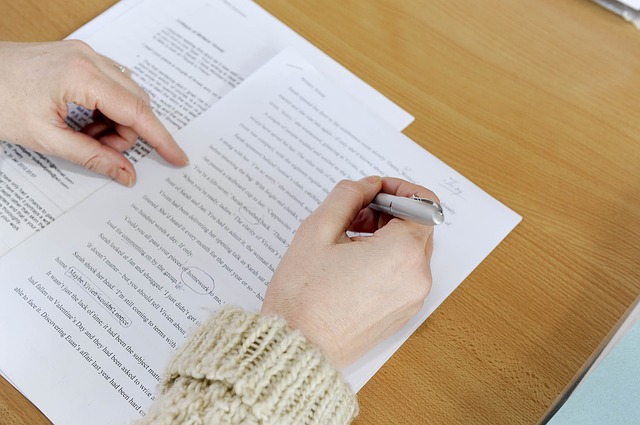
Depending on the skills and budget, you can do your proofreading. Yet, getting professional help will give you better products and advice. This will improve your piece of writing for the best. In this guide, we will breeze you through brief info on what proofreading services are.

The benefits of leveraging the services of a dissertation editor are far and wide. They augment the quality of a dissertation by a significant margin, are reliable, and take from scholars the stress of editing. But, when it comes to choosing the right editor(s), the process can prove difficult and complex. Hence, to hire excellent editors for their purpose(s) without wasting much time, scholars should observe the aforementioned tips meticulously.
Purdue Online Writing Lab Purdue OWL® College of Liberal Arts
Thesis and Dissertation: Getting Started

Welcome to the Purdue OWL
This page is brought to you by the OWL at Purdue University. When printing this page, you must include the entire legal notice.
Copyright ©1995-2018 by The Writing Lab & The OWL at Purdue and Purdue University. All rights reserved. This material may not be published, reproduced, broadcast, rewritten, or redistributed without permission. Use of this site constitutes acceptance of our terms and conditions of fair use.
The resources in this section are designed to provide guidance for the first steps of the thesis or dissertation writing process. They offer tools to support the planning and managing of your project, including writing out your weekly schedule, outlining your goals, and organzing the various working elements of your project.
Weekly Goals Sheet (a.k.a. Life Map) [Word Doc]
This editable handout provides a place for you to fill in available time blocks on a weekly chart that will help you visualize the amount of time you have available to write. By using this chart, you will be able to work your writing goals into your schedule and put these goals into perspective with your day-to-day plans and responsibilities each week. This handout also contains a formula to help you determine the minimum number of pages you would need to write per day in order to complete your writing on time.
Setting a Production Schedule (Word Doc)
This editable handout can help you make sense of the various steps involved in the production of your thesis or dissertation and determine how long each step might take. A large part of this process involves (1) seeking out the most accurate and up-to-date information regarding specific document formatting requirements, (2) understanding research protocol limitations, (3) making note of deadlines, and (4) understanding your personal writing habits.
Creating a Roadmap (PDF)
Part of organizing your writing involves having a clear sense of how the different working parts relate to one another. Creating a roadmap for your dissertation early on can help you determine what the final document will include and how all the pieces are connected. This resource offers guidance on several approaches to creating a roadmap, including creating lists, maps, nut-shells, visuals, and different methods for outlining. It is important to remember that you can create more than one roadmap (or more than one type of roadmap) depending on how the different approaches discussed here meet your needs.

The Ultimate Guide to Editing Your Dissertation: Tips and Tricks for a Smooth Process
Introduction
Starting the dissertation editing journey is akin to refining a diamond from the rough; it requires precision, patience, and a keen eye for detail. This ultimate guide is your beacon through the often tumultuous seas of dissertation editing, offering you the strategies and insights needed to polish your work until it shines. From initial reviews to the final touches before submission, we cover everything you need to transform your dissertation into a masterpiece of academic excellence.

Why Editing Your Dissertation is Non-Negotiable
Editing your dissertation transcends basic proofreading to become an essential step in clarifying your arguments, solidifying your structure, and ensuring your academic voice resonates throughout your work. This meticulous process elevates your dissertation from a mere collection of ideas to a cohesive, compelling narrative that captures and sustains your reader's attention. In the competitive realm of academia, a well-edited dissertation distinguishes your work as a testament to your dedication and scholarly insight, paving the way for recognition and success in your field.
Getting Started: Setting the Stage for Success
Creating your editing checklist.
Begin with an editing checklist tailored to your dissertation's unique needs. This checklist should encompass everything from thematic consistency to citation style accuracy. It's your roadmap through the editing process, ensuring you address every aspect of your work with intentionality. Consider elements such as argument structure, evidence relevance, and the seamless flow of ideas. A comprehensive checklist not only streamlines your editing efforts but also instills a sense of confidence and progress as you methodically refine your dissertation.
Understanding Your Dissertation Structure
A deep understanding of your dissertation’s structure is fundamental. Each section, from the introduction to the methodology, and through to the conclusions, should be scrutinized for its role and effectiveness in advancing your thesis. This segment of the guide delves into strategies for evaluating and enhancing the structural coherence of your dissertation, ensuring that every chapter, section, and paragraph serves a purpose and contributes meaningfully to your overall argument. A well-structured dissertation facilitates a smoother reader experience and underscores your scholarly competence.
Diving Deeper: Advanced Editing Techniques
Enhancing clarity and cohesion.
Clarity and cohesion are the hallmarks of a well-edited dissertation. This section explores techniques for breaking down complex ideas into clear, comprehensible segments without sacrificing depth or academic rigor. For further guidance on maintaining a coherent narrative throughout your dissertation, consider exploring additional resources such as "Writing and Revising Your Dissertation: Tips for Clarity, Coherence, and Impact," which offers specialized advice on structuring and refining your academic work. Learn to wield transitional phrases with precision, crafting a narrative that flows logically and effortlessly guides the reader through your scholarly journey. Achieving clarity and cohesion not only enhances the readability of your dissertation but also amplifies the impact of your research findings.
Mastering Your Argument
Central to your dissertation is a compelling argument, meticulously supported by evidence and articulated with conviction. This segment offers insights into fortifying your thesis, leveraging supportive data effectively, and engaging with counterarguments in a manner that enriches your narrative. It’s about crafting an argument that is not only persuasive but also grounded in meticulous research and critical analysis, positioning your work as a valuable contribution to your field.
Polishing for Academic Style
Academic style encompasses more than just adherence to citation formats; it's about expressing complex ideas with sophistication and precision. This part of the guide focuses on refining your academic voice, ensuring your writing is not only error-free but also reflective of the standards of scholarly communication. From the nuanced use of terminology to the strategic deployment of active and passive voice, polishing for academic style is about fine-tuning your dissertation to meet the highest standards of academic excellence.

Leveraging Feedback: The Art of Revision
Creating a constructive feedback loop.
Feedback is the lifeblood of the revision process, providing critical insights that can significantly improve the quality of your dissertation. This section outlines strategies for establishing a constructive feedback loop with your advisors, peers, and potentially professional editors. Learn how to solicit feedback that is both broad and specific, enabling you to refine your arguments, enhance your methodology, and strengthen your overall narrative. Embracing feedback as a positive force can transform your dissertation into a more polished and persuasive document.
Incorporating Feedback for Comprehensive Improvement
Receiving feedback is one thing; effectively incorporating it into your dissertation is another. This part of the guide delves into methods for analyzing and prioritizing feedback to make meaningful improvements to your work. It covers strategies for distinguishing between subjective opinions and objective critiques, ensuring that revisions enhance the clarity, coherence, and impact of your dissertation. Incorporating feedback is an iterative process that, when done thoughtfully, can elevate your dissertation to new heights of academic excellence.
The Final Stretch: Preparing for Submission
Ensuring compliance with submission guidelines.
As you approach the finish line, understanding and adhering to your institution's submission guidelines is paramount. This section provides a checklist for final preparations, including formatting your document according to specific requirements, ensuring all citations are accurate and complete, and verifying that your dissertation meets any additional stipulations set forth by your department or university. Adherence to these guidelines is crucial for a smooth submission process.
Mental and Emotional Preparation for Submission
The final stages of preparing your dissertation for submission can be as much about mental and emotional readiness as they are about academic rigor. This segment offers advice on managing the stress and anxiety that often accompany this phase, including time management strategies, techniques for maintaining a positive outlook, and ways to seek support from your academic community. For additional insights into navigating the emotional challenges of Ph.D. programs, the podcast "Dealing with Stress and Anxiety in Ph.D. Programs" provides targeted strategies and support for managing these common yet challenging experiences. Preparing yourself mentally and emotionally for submission is key to navigating this challenging yet rewarding period with grace and resilience. Additionally, here's a related YouTube video on Break Past the Barriers of Endless Revisions. It could provide you a multi-faceted understanding of the topic.
Conclusion: Your Path to a Polished Dissertation
Editing your dissertation is an indispensable step toward achieving academic distinction. This guide provides a comprehensive overview of the editing process, from initial considerations to advanced techniques for enhancing clarity, cohesion, and style. Remember, a well-edited dissertation not only demonstrates your expertise and hard work but also opens doors to academic and professional opportunities.
Take your dissertation to the next level; let it be a testament to your dedication to your field and your commitment to scholarly excellence. With this ultimate guide, you're equipped to navigate the editing process with confidence and precision, ensuring your work stands out in the crowded landscape of academic research.
At WritersER, we're committed to supporting you through every stage of your academic journey. As you prepare for what comes next, consider how we can assist you in reaching your goals. Schedule your admission interview with us today and explore how we can help you achieve your next academic milestone. Click here to get started!

Best Dissertation Proofreading and Editing Tips to Make Your Work Spotless
You’ve heard this statement many times before: “the dissertation is the most important project you’ve ever worked on.” That may sound like a cliché, but it’s absolutely true. You managed to surpass many obstacles during the research and writing stage. You probably consulted at least one online guide that taught you how to write your dissertation project step by step. Now, you’re finally near the final point of the journey. Before you can present the dissertation project and earn the degree you deserve, you have to go through one last challenge: the editing and proofreading stage.
That may seem like an easy challenge. You already covered the hard part; now you only need to read the content and fix some minor flaws, right? Unfortunately, that’s not the case. Many MA and PhD candidates are overwhelmed by the editing stage. They have spent months and years working on these projects, and now they have to be ruthless when editing their own work.
When you’re too attached to the content you wrote, it’s not easy to admit it’s deeply flawed. That’s why you need to approach it from a researcher’s point of view. The following tips and tricks will help you do that. Some of the editing and proofreading steps we suggest will sound obvious, but it’s surprising how many candidates neglect them. That’s why it’s important to approach the process as a true beginner.
The Ultimate Step-By-Step Guide to Editing a Dissertation
The first step is to take a break
Your first instinct after finishing the PhD thesis might be: “I’m finally done! I should immediately proofread this and submit it as soon as possible.” Not so fast! Remember: you are too attached to this content to view it from an unbiased point of view.
You can allow yourself to take a break of at least few days (give yourself a week if that’s possible). Get occupied with your hobby, get some air, and try not to open the document, unless you get really good ideas for improvements throughout this period.
After that short time of inactivity, you can get back to the paper with a fresh set of eyes. You’ll be surprised to discover the new approach. Suddenly, you can read the content as if someone else wrote it. You’ll easily notice flaws that were not there before. Finally, you can start with the editing stage.
{eblogads}
Edit first, proofread later
There is an important difference between editing and proofreading:
During the editing stage, you are making improvements in the logical flow, expression, language use, and overall quality of your writing. Before you can start the editing process, you need to read the document at least two times, and take notes of the improvements you can make. Then, you can start removing unnecessary sentences and paragraphs, adding more information where necessary, and enhancing the overall readability of the dissertation.
Proofreading is also a very important aspect of the dissertation completion process, but it’s simpler than editing. Once you’re done improving the meaning and style of the content through the editing stage, you can proceed with the correction of any grammatical, punctuation, spelling, and other language mistakes.
Why do you need to get through the editing stage before you can proceed with proofreading? It would be pointless to make improvements in grammar, spelling, and punctuation if you have to get rid of some parts of the content and add more information later on. That’s why you should first focus on the essence before proceeding with the form.
You can’t take the human element out of the editing process
Many PhD candidates make a serious mistake: they trust their word processor’s spelling and grammar feature too much. When they want to make sure their content is flawless, they use automated tools like Grammarly or Hemingway Editor to identify spelling and grammar errors. No one can deny that these tools are effective in recognizing basic flaws, but you cannot rely on them without any doubts. They can never replace an actual editor.
Format the references
If you were smart enough, you took care of the references during the writing stage. If you forgot to keep track of the information you used from different sources, you would have troubles remembering where you got the ideas. Let’s assume you were smart and you took notes of the references during the writing stage. If not, you’ll have to go through all resources all over again to figure out which of them you used in the dissertation.
Whatever the case is, don’t forget to format the references in accordance with the citation style you’re using. Every comma and capital letter makes a difference! Follow the guidelines of the specific citation standard if you want to end up with a clean, flawless dissertation project.
Get a second opinion
Do you have a friend or colleague you can trust? If you do; then ask them to read your work and share their opinion. You might get useful tips on how to improve its readability and quality. If you can’t rely on anyone, then you can hire a professional editing service to go through your work for final improvements. Some online services allow you to collaborate with the editors, so you’ll work together with the expert to achieve flawless results.
Finally, your mentor will also read your dissertation and share few remarks. Once you take care of those final steps, your dissertation project will be ready for submission.
Final Tips and Tricks for Editing Your Dissertation
As you can see, the editing and proofreading steps are pretty simple. Still, they require your full commitment! Don’t assume that you’ll briefly go through this stage. It will take a considerable period of time. The dissertation is a very complex project, so you’ll probably get new ideas and you’ll make serious improvements as you read and correct the content over and over again. Still, it’s important to recognize the limit.
Some PhD candidates get so overwhelmed by the editing process that they cannot stop making corrections. The trick is to view your dissertation as a project that leaves space for growth. You won’t stop researching the topic once you submit and present the dissertation. Set a deadline for the editing stage and make sure to respect it.
The most important thing to keep in mind is to stay objective while editing and proofreading your own work. When your mentor, friend, or editor has some criticism, you should seriously consider their advice.
Are you ready to face the challenge? Take a break after the writing stage, and start editing as diligently as possible!
Click here to cancel reply.
You must be logged in to post a comment.
Copyright © 2024 PhDStudent.com. All rights reserved. Designed by Divergent Web Solutions, LLC .

Study at Cambridge
About the university, research at cambridge.
- Events and open days
- Fees and finance
- Student blogs and videos
- Why Cambridge
- Qualifications directory
- How to apply
- Fees and funding
- Frequently asked questions
- International students
- Continuing education
- Executive and professional education
- Courses in education
- How the University and Colleges work
- Visiting the University
- Term dates and calendars
- Video and audio
- Find an expert
- Publications
- International Cambridge
- Public engagement
- Giving to Cambridge
- For current students
- For business
- Colleges & departments
- Libraries & facilities
- Museums & collections
- Email & phone search
Reworking and editing your dissertation
- Faculty of Modern and Medieval Languages and Linguistics
- About overview
- Governance of the Faculty overview
- Governance at MML
- Faculty Board overview
- Board Overview
- Membership and Contacts
- Student Engagement
- Staff-Student Liaison Committee overview
- Committee Overview
- News & Events
- Academic Visitors
- Public Engagement
- IT Services
- The University Library
- Language Centre
- Research Facilities
- MMLL privacy policy
- Health and Safety at MMLL
- Subjects overview
- Modern Greek
- Spanish and Portuguese
- Slavonic Studies overview
- Slavonic Studies virtual event for Years 11 & 12
- Theoretical and Applied Linguistics
- Undergraduates overview
- The Courses: Key Facts overview
- Course costs
- The courses we offer
- The MML Course overview
- MML: The First Year
- MML: The Second Year
- MML: The Year Abroad
- MML: The Fourth Year
- The Linguistics Course
- The History and Modern Languages Course overview
- Course structure overview
- How We Teach
- How You Learn
- Resources for teachers and supporters
- Careers and Employment
- Alumni testimonials overview
- Matthew Thompson
- Rosie Sargeant
- Mark Austin
- Esther Wilkinson
- Katherine Powlesland
- Gillian McFarland
- Katya Andrusz
- Frequently asked questions overview
- Choosing your course
- Applications
- Resources and reading lists for prospective students
- Did you know...?
- Student Perspectives overview
- Alfie Vaughan
- Romany Whittall
- Postgraduates
- Offer Holders overview
- French overview
- Summer Preparation
- German overview
- Beginners Course overview
- Post A-Level Course overview
- Italian and Greek overview
- Portuguese overview
- Spanish overview
- History & Modern Languages Tripos
- From Our Students
- Current undergraduates overview
- Year Abroad overview
- Current Students
- Thinking about your Year Abroad overview
- Studying overview
- Finance overview
- Turing Scheme
- Safety and Insurance
- Year Abroad FAQs
- Year Abroad Project FAQs
- Modern and Medieval Languages Tripos overview
- MML Part IA List of Papers
- Part I Oral Examination A and B
- MML Part IB List of Papers
- MML IB Assessment by Long Essay
- The Year Abroad Project
- MML Part II List of Papers overview
- MML Part II List of Borrowed Papers
- CS5: The Body
- CS6: European Film
- Oral C Examination
- MML Part II Optional Dissertation
- MML with Classics
- Linguistics within the Modern and Medieval Languages Tripos
- Linguistics Tripos overview
- Linguistics Tripos - List of Papers
- Transferable Skills
- History and Modern Languages Tripos
- Marking Criteria
- Supervision Guidelines
- Teaching Provision
- Examinations Data Retention Policy (PDF)
- Learning Resources
- Additional Course Costs
- Faculty guidance on plagiarism
- Translation Toolkit overview
- 1. Translation as a Process
- 2. Translation as a Product
- 3. Equivalence and Translation Loss
- Email etiquette at MMLL
- Overall Degree Classification
- Current postgraduates
- Research in MMLL overview
- Research by Section overview
- Italian overview
- CIRN Home overview
- CIRN Events overview
- CIRN Annual Lecture 2015
- CIRN Annual Lecture 2016
- CIRN Annual Lecture 2017
- CIRN Annual Lecture 2018
- CIRN Annual Lecture 2019
- CIRN Annual Lecture 2019-20
- CIRN Annual Symposium 2015
- CIRN Annual Symposium 2016
- CIRN Annual Symposium 2017
- CIRN Annual Symposium 2018
- CIRN Annual Symposium 2019
- CIRN News and Events archive
- Slavonic Studies
- Research by Language overview
- Research by Period overview
- Medieval and Pre-Modern
- Early Modern
- Eighteenth Century
- Nineteenth Century
- 1900 - 1945
- 1945 - present
- Research by Thematic Field overview
- Literature, Visual Culture and the Arts overview
- Colonial, Postcolonial and Decolonial Studies
- Contemporary Culture and Society
- Drama, Music and Performance
- Environmental Criticism and Posthumanism
- Film and Visual Culture
- Gender, Feminism and Queer Studies
- Intellectual and Cultural History
- Literary Theory, Philosophy and Political Thought
- Material Culture and History of the Book
- Poetry, Rhetoric and Poetics
- Language and Linguistics overview
- Comparative Syntax
- Computational Linguistics
- Dialectology
- Experimental Phonetics and Phonology
- Historical Linguistics
- Language Acquisition
- Language Change
- Language Contact
- Multilingualism
- Psycholinguistics
- Semantics, Pragmatics and Philosophy
- Translation Theory and Practice
- Funded Projects
- Apply for Research Funding overview
- Research Strategy Committee
- Leverhulme Early Career Fellowships
- British Academy Postdoctoral Fellowships
- Management of Ongoing Grants
- Funding Opportunities
- Centres overview
- Cambridge Film and Screen
- Cambridge Italian Research Network (CIRN)
- Centre of Latin American Studies (CLAS)
- Cambridge Language Sciences
- Cambridge Endangered Languages and Cultures Group (CELC) overview
- Seminar Series
- Past conferences
- Cambridge Centre for Greek Studies
- Centre for the Study of Global Human Movement
- Equality and Diversity overview
- EDI Committee
- Accessibility Statement
- Accessible Materials
- Recording Lectures
- Athena SWAN
- Mentoring and Career Development
- Parents and Carers
- EDI Related Links
- Harassment and Discrimination
- Outreach overview
- Resources overview
- Open Day Resources for Prospective Students
- CCARL A-level Resources overview
- Why Not Languages? resources overview
- Student Q&A
- Events for Students overview
- Events for Teachers overview
- Diversity in French and Francophone Studies: A CPD workshop series for teachers of French
- Diversity in German Studies - CPD Workshop series aimed at secondary teachers of German
- Workshop for Spanish Teachers
- Workshop for Teachers of German: Diversity in German Culture
- Access and Widening Participation
- Prospective Students
- Equality and Diversity
Reworking your first draft
Finishing your first draft is a milestone in the process of writing a dissertation. Until this point, your ideas may have been quite hazy, but now the real work can start in reorganising and refining your piece.
Your supervisor’s comments should provide you with a clear sense of how you can improve your work. There may be areas in which you need to do some further reading; you may need to restructure your draft to introduce greater balance in your material, or coherence in your ideas. But you also need to be critical of your own work and consider how your analysis and arguments could be strengthened. This is the point at which you should take a step back and consider your work as a whole. Some time away (at least two weeks) from your dissertation is extremely helpful, so try to build this into your schedule. When you come back to it, you will find it much easier to see the bigger picture, and it will become much clearer to you where your overall argument is heading, and how to improve the weaker parts of your analysis.
Ask yourself: what has my work achieved? What is the significance of the conclusions I have reached? Are there ways in which I could push my analysis further? The best dissertations are written by students who are not satisfied with their work until a clear and original argument emerges, and then have the courage (and the time) to rework their drafts radically to bring them into line with that argument.
At this stage it is a good idea to check back to the Faculty marking criteria for the Year Abroad Dissertation or the Optional Dissertation . To what extent are you fulfilling these? How could you improve your work in each of the areas mentioned?
Editing for style
Spend some time working on the stylistic aspects of your draft. It should be written in a style appropriate for a piece of academic work, which means that it should be clear and concise, using specialist terms accurately but not lapsing into jargon. Avoid colloquialisms, vague or impressionistic language (phrases which sound good but don’t really mean anything), convoluted sentences and too much repetition in lexicon or syntax.
Cutting words
As part of the editing process, students often find that they need to cut a substantial number of words. This can be a laborious and somewhat dispiriting task, as you delete whole sentences and sections which took a lot of energy to write in the first place. But if you find yourself in this situation, think positively: pruning – or hacking – parts of your dissertation will produce a much leaner and meaner piece of work, in which all your points are made with an economy of style (much appreciated by examiners) and rigorously related to your argument, and all irrelevant or fluffy material is suppressed.
Producing a final version
A supervisor may be able to read more than one draft for you, but producing the final version is your responsibility. Allow plenty of time for proofreading: use a spellchecker to find most of the typos, but also read your work through very carefully to eliminate other kinds of error that a spellchecker will not pick up.
Search form

Related links
- Student Support
- Wellbeing at Cambridge
- Year Abroad FAQ
- Polyglossia Magazine
- The Cambridge Language Collective
- Information for current undergraduates
- Visiting and Erasmus Students
- Dissertation Toolkit home
- 1. Approaching the dissertation
- 2. Initial ideas and finding a supervisor
- 3. Getting the most from your supervisor
- 4. Avoiding common pitfalls
- 5. Choosing and defining a topic
- 6. Producing a work schedule
- 7. Reading for your dissertation
- 8. Planning your dissertation
- 9. Writing a first draft
- 10. Reworking and editing your dissertation
- 11. Inserting quotations
- 12. Referencing other works
- 13. Presenting your bibliography
- 14. Plagiarism
- 15. Using images in your dissertation
- 16. Preparing your dissertation for printing and binding
Keep in touch
- University of Cambridge Privacy Policy
- Student complaints and Examination Reviews
© 2024 University of Cambridge
- University A-Z
- Contact the University
- Accessibility
- Freedom of information
- Terms and conditions
- Undergraduate
- Spotlight on...
- About research at Cambridge


Perfect Your Dissertation: 17 Tips from Dissertation Editor
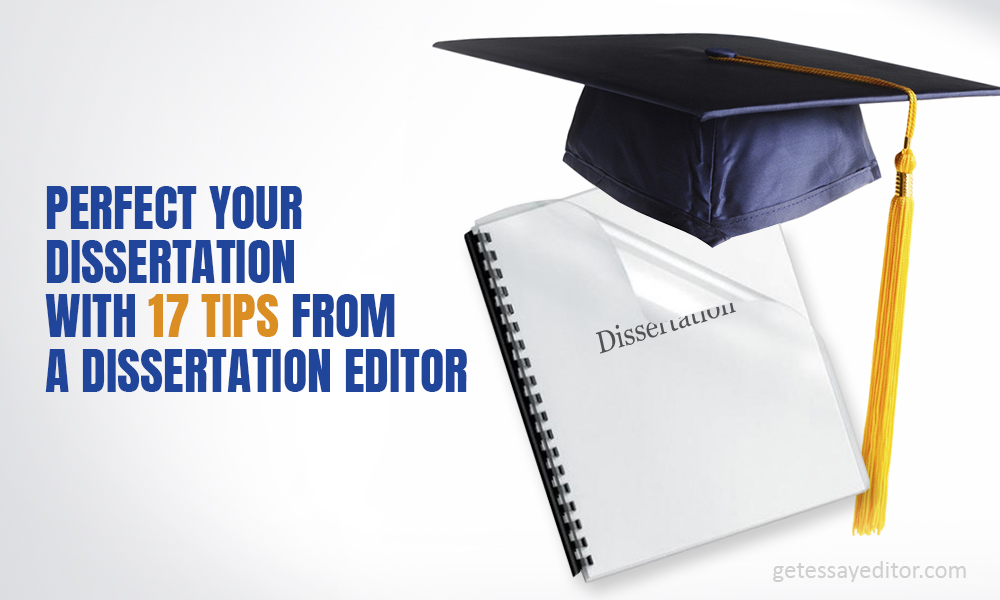
However, the writing process rarely runs smoothly. Like many of your peers, you are likely to procrastinate, feel stressed and lost throughout the writing process. And it’s completely normal, given the complexity and significance of this project.
The experts of our professional editing services have collected valuable advice for organizing your dissertation writing, overcoming writer’s block, and editing the completed paper. For your convenience, we have divided the tips into two blocks.
Got a written dissertation already ? Perfect it with the help of a dissertation editor of Getessayeditor.com . Our academic editor will correct all kinds of writing and formatting mistakes or revise a dissertation according to your professors comments.
Part 1. Organizing your writing process
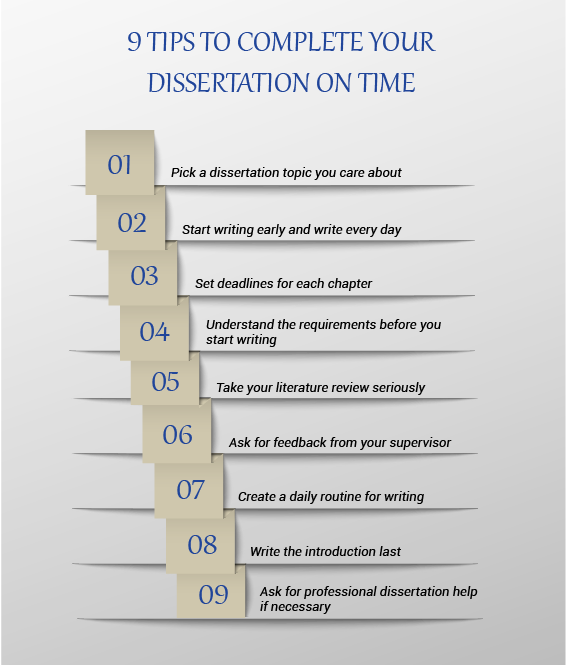
- Choose a dissertation topic you care about Picking the topic which is of interest for you or is relevant for your future career is halfway for success. Why? If you care about the subject, you will be naturally motivated to investigate it and to stay on track with your writing. You won’t need to force yourself to do something. If you have little control over the dissertation topic, try talking to your supervisor to correct the focus of your research so that it is more meaningful for you.
- Start writing early and write every day Students often postpone the day they are going to actually start writing. They think “I need to complete this capstone first” or “I’ll start writing as soon as I prepare a monthly report for my boss”. Needless to remind that it leads to sleepless nights, poor writing and missed deadlines. Don’t wait for the moment you feel motivated and inspired – just start writing. Experts recommend that you write a certain amount of words or pages every day. Composing a dissertation might look daunting, but writing 300 words per day is quite an easy task, isn’t it?
- Understand the expectations in advance To make sure your dissertation meets all of the requirements and avoid costly mistakes, study the dissertation requirements, module handbooks and other guidelines beforehand. Consult your supervisor if something isn’t clear to make sure you’re on the same page. Deep, comprehensive understanding of what the committee expects from you is a must if you want a high grade for your dissertation.
- Set deadlines for yourself It takes planning to submit the dissertation on time. Set the entire writing process into certain milestones and set deadlines for each. For example, you might set the dates by which each chapter should be complete, and then figure out how many words per day you need to write to keep up with this schedule. Don’t forget to reward yourself for each milestone completed. Are you preparing for exams but cannot concentrate on learning? Here are a few tips to help you out: https://getessayeditor.com/blog/students-and-exams-how-to-focus-on-learning.
- Take the literature review stage carefully The literature review is the process of analyzing what other writers and researchers in your area had to say. The more quality sources you process during this stage the better research you eventually will come up with. So, don’t rely solely on the internet – you might want to visit the university library or read the dissertations of other students in your field. Also, when writing your literature review chapter, don’t just summarize the ideas of others. Find similarities, compare and contrast the ideas of others to come up with a deep, comprehensive analysis of theoretical sources.
- Request feedback regularly The university will assign you an advisor or supervisor, and to make the writing process effective, ask for their feedback early on and do it regularly. They will help you correct the way your dissertation writing is going. So, if there is an issue with your writer, you’ll be able to revise it early on and won’t have to rewrite the entire chapter later. By the way, talking to a dissertation consultant can also help you overcome the writer’s block .
- Create a schedule and follow it Developing writing routines helps to stay productive and motivated throughout the dissertation writing period. Choose the time of the day when you are most productive and devote these hours to working on a dissertation. Sticking to a writing schedule will help you stay productive every day and get more done. To keep your energy levels high, opt for healthy nutrition, exercise regularly and give yourself enough sleep.
- Ask professional dissertation service for help when you need it You might find yourself in a situation when you cannot submit that dissertation on time. You might be overwhelmed by other assignments, your work or other commitments. You might lack the needed resources or time to complete the project. Whatever your reason is, if you have issues with submitting a dissertation on time, consider using the help of best dissertation writers. The academic writing professionals can help you with the creation of your dissertation from scratch, staying in touch throughout the process. If you are German or French student who has issues with usage of modal verbs in English , your writer will help you submit the dissertation in flawless English, right on time.
- Write the introduction last Writing introductions is confusing for many. If you are feeling stuck at this stage, just skip your introduction and start writing the body of the dissertation. You’ll write the introduction easier when you already have a written dissertation content. You will have research results at hand and will be able to introduce them effectively.
Successful dissertation writing is all about deep research and organizing the process. By working at your pace and writing a bit every day, you’ll get closer to a final goal faster.
Step 2. Doing the PhD dissertations edit
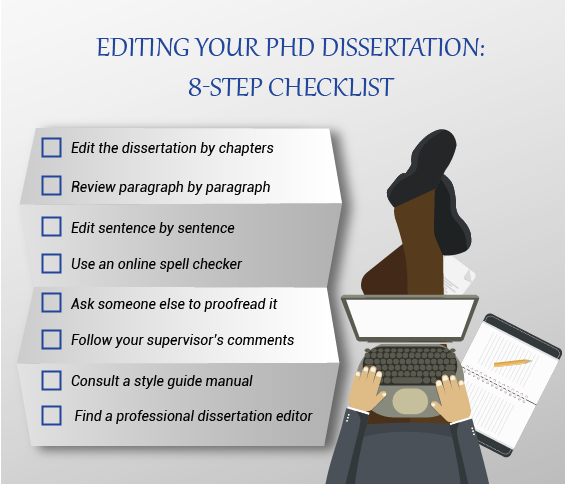
- Don’t try to edit the entire dissertation in one sitting Since your dissertation may exceed a hundred pages, it’s impossible to edit it thoroughly in one sitting. If you work in a rush, you’ll omit dozens of mistakes. So, give yourself up to a week for editing and edit by chapters or, let’s say, 15 pages a day.
- Review the dissertation by paragraphs Each paragraph in your writing should convey one main idea. Make sure the first sentence introduces the main point, and the rest of the paragraph supports or explains it. Avoid rambling on the subject – if the paragraph adds nothing to what you’ve previously said, remove it. Use introductory, comparing and contrasting phrases to clarify the relationships between the paragraphs.
- Edit sentence by sentence Now that you’ve made sure that each paragraph makes sense, it’s time to edit on the sentence level. Ideally, each sentence should be no longer than 3 lines. To evaluate your writing style and avoid awkward phrases, read it aloud. Check the word usage – can the same idea be formulated in fewer words and using more concise language? Then, check the sentences for typos and punctuation. You might find these spelling and grammar tips helpful.
- Use an online spell checker You shouldn’t rely on spell checker as it cannot spot all kinds of mistakes. Still, these checkers are effective when it comes to fixing grammar, punctuation, and spelling. Running your writing through an online tool such as Grammarly.com or Grammarcheck.net can ease your editing process.
- Have a second set of eyes to proofread it Finding someone else to copyedit your writing is another proving method when it comes to correcting an important academic paper. Ask a friend, a significant other or a roommate to review your chapters to ensure you haven’t missed anything.
- Follow your supervisor’s comments If your dissertation supervisor revised your writing, use their comments as a primary guide for editing. Their suggestions can include comments to strengthen your arguments, use other research methods as well as work on the writing style.
- Consult the style guide manual Most likely, you’ll be required to format your dissertation in APA, MLA or another citation style. Before submitting the dissertation, familiarize yourself with the relevant style guide to cite sources and format the paper in strict accordance with it. Universities usually don’t tolerate the mistakes in referencing. If you seek advice on formatting your dissertation in APA, check out our brief guide: https://getessayeditor.com/blog/apa-proofreading-for-students-10-tips .
- Consider hiring an English editor A professional editor can fix the common mistakes, make your writing clearer and format according to the required citation style, allowing you to submit a perfect dissertation. Indeed, your dissertation is a way too important to leave its quality to a chance. Moreover, hiring a pro to get your dissertation corrected will release your stress and give you some free time to prepare for defense.
Don’t neglect the editing stage as the quality of the paper you’ll submit will depend solely on it. The dissertation requirements are stricter than those for a general research paper. Feeling too exhausted to edit on your own? Entrust this task to professional editors with an academic background.
Looking for cheap thesis editors online?
Our American academic editors provide comprehensive assistance with dissertation editing and proofreading. An experienced editor will prepare your draft for submission by eliminating all kinds of mistakes and polishing the writing style. Unlike other websites, our custom dissertation writing service provide direct contact of your editor so you could discuss your project in details.
Haven’t completed your dissertation yet? No problem – our writer will pick up where you left off and develop your ideas, delivering you a completed dissertation right on time. Curious about the price? Check out our services and pricing and note that we offer a whopping 20% discount for all first-time users.
The website's original design has been refreshed. We welcome your thoughts and questions—your feedback matters to us! Don't hesitate to reach out, and we'll take your input into account. Cheers!

6 Tips to Self-Edit Your Dissertation
Table of contents, introduction.
Dissertations are mostly written at the end of a graduation program. For most students, it is an initiation into doing research work. Any research work would only come across as half-baked if it hasn’t gone through several drafts as well as several rounds of editing and proofreading.
Self-editing includes all the changes you make to further enhance the language, structure, and ideas of your dissertation after you have completed writing it. You can always approach a professional for editing your dissertation, but it is always better to edit your dissertation based on your capacity even if you choose to do that. This blog will provide you with the necessary tips if you plan to self-edit your dissertation.
6 Tips to Self-edit your Dissertation
We are providing you with a list of 6 pointers that will help you self-edit your dissertation .
- One Word at a Time
As much as it is important to focus on the larger aspects of your text and the way you have carried on from one chapter to another, a line-by-line reading should never be underestimated. When you are proofreading, you are not just checking for the typos or spelling mistakes, you are considering whether every word fits in where it does. Take a seat as a reader and try to gauge if a person reading your document for the first time will understand and make sense of each line.
2. Check the flow of your arguments
Many researchers make the mistake of forgetting that their writing is aimed at a reader, who will probably be familiar with the subject matter. Try to analyze if the complex sentences in your dissertation can be simplified or phrased in a better way to increase the flow and readability of the language. Ultimately, question whether your way of writing a certain idea is helping the reader to understand that idea or whether it would deter them from further reading your dissertation .
3. Re-check the basics of grammar and punctuation
Now, the scholar that you are, you might think it is rather unnecessary for you to read over a Grammar textbook. But you don’t really have to do that. What is important for any editor, self-appointed or not, is to double-check and do research on everything that they are not sure of.
Feel a comma is unnecessary? Go google whether that punctuation is used in a certain scenario. It might seem tiring to head to an entire article to figure out the usage of a minor punctuational error, but it will definitely hone your editing skills as you go ahead.
4. Run a spell check
You can either do this before you do a line-by-line checking or after you do that. Set the style of English (UK or US) that you are following for the document as default and run a spell-check. The spell-check is a quick way to spot and correct the spelling errors in your document.
You can also use certain popular applications for weeding out grammatical and spelling errors such as Grammarly or Hemmingway Editor for the same purpose.
5. Check the consistency of the used terms
If you are working on your dissertation , it is important to make sure that you are being consistent with the terms you use. If you are using abbreviations or acronyms, ensure that those have been expanded the first time you used those. Also, re-check whether the technical terms you have used are spelled the same way throughout the document.
6. Use Google Scholar
Google Scholar is a free database that allows you to search through the published studies. It can come in handy if you are uncertain in a certain academic jargon is used in a particular way or is acceptable within a certain field. You can search for that term in Google Scholar to see how many hits it brings from the published academic papers. You can re-check the context in which the term is used to avoid hassles in the future.
Let’s Sum Up
This blog has outlined some of the things you need to keep in mind if you self-edit your dissertation. When you self-edit your dissertation, you are placing yourself in the shoes of an editor; thus, it is important to maintain some level of objectivity. Self-editing requires you to approach your document with a new lens so that the errors can be done away with effectively. As a fellow editor, I hope the article has equipped you with the necessary tips and tricks for editing your dissertation.
-Lily Brooke

Leave a Comment Cancel reply
Save my name, email, and website in this browser for the next time I comment.
What are the 12 tips for editing academic work?

This is the third of four chapters about Editing and Proofreading . To complete this reader, read each chapter carefully and then unlock and complete our materials to check your understanding.
– Focus specifically on the editing process
– Provide twelve pieces of advice for effective editing
– Explore how that advice can be best employed by a writer
Chapter 1: Why is it important to edit and proofread?
Chapter 2: How is editing different from proofreading?
Chapter 3: What are the 12 tips for editing academic work?
Chapter 4: What are the 12 tips for proofreading academic work?
The third chapter on this topic focuses specifically on the skill of editing, looking at the most important pieces of advice available to students during the editing process. Well-edited writing should be non-biased and satisfying to read, with clear connections between the thesis statement , main ideas and arguments and supporting evidence. Although it isn’t easy to write an assignment that ticks all of these boxes, the following twelve tips should make the editing process somewhat easier and more productive for non-native speakers of English.
1. Separate writing from editing
The first piece of advice for students when editing is to make sure that writing and editing processes are done at separate times. It’s important when writing your assignment that you do not interrupt your natural flow by worrying too much about what you’ve written and how you’ve written it. First write fluidly, committing your thoughts and ideas to paper without worrying too much about how to improve upon your writing.
2. Begin editing after completing a first draft
Only once you’ve completed a first draft of the whole assignment (or at least a complete section of that assignment) should you then turn your attention to the editing process. As is stated in Tip 1, it’s important that you allow your creative mind to flow without interruption; the creative mind requires different skills and processes to the editorial mind, which by necessity is more patient, critical and reflective.
3. Allow plenty of time
Students often make the mistake of not dedicating enough of their schedule to thorough editing. A common misconception of the creative-writing process is that it takes the largest amount of time, when in fact it’s more common for roughly 60% of the time spent writing to be allocated to editing. A well-edited document will have required numerous hours of dedicated editing, improving the style of the writing, the content of the arguments included, and considering also the overall organisational structure. In truth, many editors find it preferable to edit their document across multiple days so that reflection on decisions and changes can be made.
4. Create a comfortable environment
Editing takes considerable concentration and brain power, and to do this effectively a student should create a comfortable working environment so that they can think critically and reflectively. Make sure you’re able to maintain correct posture when writing, that your computer is at the appropriate height and distance from your body, and that you have a peaceful environment to think in. Although some people find that music helps with the creative-writing process (particularly instrumental music), for editing and proofreading silence is often preferred.
5. Save multiple versions of your document
When editing your document on a computer, be sure to save multiple versions of that document as you make your edits and improvements. It’s possible that you may end up disagreeing with the changes you made yesterday and wish to return to an earlier draft, which is only possible if you saved and clearly labelled that document.
6. Consider your audience
When editing, don’t forget to reflect on the audience you’re creating that piece of work for. Knowing whether you’re writing for your tutor only, for general publication, for your peers in the form of a presentation or for an informal seminar task will help you to maintain the voice and style of writing that’s most suitable. It’s important to be consistent with this style throughout your work so that your writing maintains consistency and flow and encourages engagement.
7. Consider your clarity of writing
It’s also important when editing to focus on the clarity of your writing, which with regards to content means judging whether your ideas, arguments and evidence are clear, logical and correctly organised. Try to read your assignment with a fresh perspective, imagining that you are a reader that has little knowledge of your subject. Pretending to be someone else, someone who has not written or ever read your assignment , is one of the best ways of obtaining an objective viewpoint as to the clarity of your writing and argumentation.
8. Edit the content first
One of the first aspects you should focus on when editing is the overall content of your essay . Having considered both the style and clarity of your writing, you’ll now want to ask yourself a series of questions regarding the quality of the content. For example, have you sufficiently answered the task question? Are your ideas directly linked to the assignment topic? Are your arguments convincing, and is your evidence accurate? Have you provided enough evidence? Asking yourself questions such as these should help to demonstrate gaps in your research, highlighting the areas that require the most editing and improvement.
9. Edit the overall structure next
Having considered the content, the next element to edit should probably be the overall structure of your assignment . Does your essay have a sufficient balance between its introduction, body and conclusion? Is your thesis clearly stated in your introduction , and does that thesis connect with the body -section topic sentences and concluding thesis restatement ? When writing an essay, it’s important that your paragraphs are arranged in a logical sequence and that sufficient transition and summary sentences are provided to improve cohesion .
10. Edit the structure within paragraphs last
After editing for style, clarity, content and overall structure, one of the last aspects to consider is the structure within the paragraphs themselves. Successful paragraphs usually have one relevant main idea that’s contained within a clear topic sentence . Two to three supporting ideas are then commonly provided, with evidence, examples and explanation used to create a convincing argument , and perhaps a final summary sentence to remind the reader of that key argument. If your paragraphs do not include these elements, edit them thoroughly until they do.
11. Don’t forget to cite and reference
At this stage, it’s also imperative that you check that you’ve cited and referenced correctly so as to follow correct academic conduct by avoiding plagiarism . You should be including citations every time you paraphrase or quote another author’s ideas, arguments or investigations, with one related reference placed in a reference list at the end of your assignment . If at this stage you have uncited material that you wish to include in your final submission, now’s the time to determine where you found that information. You probably won’t have enough time during the last-minute proofreading stage to return to the research to find out.
12. Listen to your tutor
Finally, most academic (EAP) tutors – particularly during preliminary-year programmes – will provide their students with a variety of continuous feedback. Such feedback is usually provided for a plan, for one or two body paragraphs and for a complete draft. Carefully read any comments your tutor has regarding the style, clarity, content or organisational structure of your assignment and be prepared to make considerable changes. It can be disheartening for a tutor that spends considerable time on providing feedback for a draft which then becomes ultimately ignored or forgotten.
Downloadables
Once you’ve completed all four chapters about editing and proofreading , you might also wish to download our beginner, intermediate and advanced worksheets to test your progress or print for your students. These professional PDF worksheets can be easily accessed for only a few Academic Marks .
Our editing and proofreading academic reader (including all four chapters about this topic) can be accessed here at the click of a button.
To check a confident understanding of this reader’s chapters, click on the button below to download our editing and proofreading intermediate worksheet with activities and answer keys.
Our editing and proofreading advanced worksheet with activities and answer keys has been created to check a sophisticated understanding of this reader’s chapters.
To save yourself 3 Marks , click on the button below to gain unlimited access to all of our editing and proofreading chapters and worksheets. The All-in-1 Pack includes every chapter on this topic, as well as our beginner, intermediate and advanced worksheets in one handy PDF.
Collect Academic Marks
- 100 Marks for joining
- 25 Marks for daily e-learning
- 100-200 for feedback/testimonials
- 100-500 for referring your colleages/friends

Hi, what are you looking for?
TechSling Weblog

Why Hire Offshore AI Developers? Insights and Benefits

5 Reasons Why Opera AI Browser VPN Wins on Value and Security

How CRM Solutions Are Optimizing Real Estate Software Development

Checklist for Pilgrims Embarking on Umrah 2024

5 Essentials Of Comprehensive Background Screening in 2024

AI Development Services

Progressive Web App Development

Secure Your Mobile App Security With These 10 Essential Practices

How On Demand Delivery Tracking App helps Customers and Business Owners

Beyond Basics: Advanced Features to Look for in Insurance Policy Management Software

Reach New Audiences: Localization Tips for Global Ludo Game

5 Considerations for a Successful Insurance CRM Integration

Best Yahoo Backup Tools for Windows

How to Build a Successful On-Demand Multi-Service App Like Gojek

A Comprehensive Guide to Product Photo Retouching

Top 10 Premium WordPress Blog Themes

Enhancing User Experience: The Power of User-Centered UI/UX Design

5 Important Ecommerce Web Design Elements that Drive Traffic and Leads

Tips To Hire A Professional Web Designer

Why Hiring App Developers From India is a Smart Business Move

How Much Does it Cost to Develop an eWallet Application?

Maximizing Performance with the Apple iPhone 12 Pro Max

Optimizing Performance in Android Apps: Tips and Techniques for Speed and Efficiency

Mobile Application Development – Mastering Best UI/UX Design Practices

Guide to Hiring Web Developers – How to Make a Website

Mastering the Basics: A Beginner’s Guide to WordPress
Integrating WordPress with the Internet of Things: A How-To Guide

Cost and Features to develop a Car Rental Software

Degree vs Certificate: Which is Right for You?

How eVault Tech Supports The Digital Home Equity Lending?

Know More About Climate Change Speakers

Benefits of Custom Mobile Apps for Transportation and Logistics Companies

How to Prevent Tooth Infections: Tips from Dental Experts

How to Excel in Networking Courses for a Successful Career

How Top Colleges Are Shaping the Future of Executive MBA Education

Why Joining Pear Deck Should Be Your Next Career Move

What is CISSP? – Everything about CISSP Certification Explained

I Lost My Job to Artificial Intelligence. What’s Next?

Navigating Tax Challenges in Your Small Business: A Guide to Finding the Right Help

Redefining Boundaries: Breakthrough Startup Ideas that are Set to Shape the Business Landscape

Should You Invest in Altcoins – Considering the Risks & Rewards

Maximizing Your Savings: The Best Way to Save Money on a Budget

Understanding the ‘Love My Girlfriend’ Shirt Phenomenon

ICSSolutions: Enhancing Security and Efficiency for Businesses

Emerging Trends: How the Natural Foods Landscape is Transforming in 2023

CRM: A SaaS Product with Caliber to Rule the Industry Down The Road

The Role of Content in Effective SEO Services

Ecommerce Marketing Strategies for Beginners

The Beginner’s Guide to a Career in Digital Marketing

How Long Does an SEO Service Take to Rank?

Mastering the Craft: A Comprehensive Guide to SEO for Carpenters

User Centered Design: Placing the User at the Core of UI UX Design Courses

Strategies for Generating Ideas in PTE Writing

Benefits of Taking a Dental Technician Course

Qualification Needs for Dialysis Technician Course In Agra

Streamlining Academic Administration with a Student Result Management System

What are Eco-Friendly Cleaning Products?

Redefining Office Culture to Boost Employees Satisfaction and Productivity

How the Contemporary Industry Sector is Facing the Issues Related to the e-Waste’s Recycle

Best Practice To Create Green Workplace

The Effects of Wastewater on The Environment

Scientific Disruption
What is Demographic Segmentation?

An Introduction to Single-Cell Technologies in Medical Research, with Neety Sahu

Owning God: An Identity Based View Of Violent Extremism

The Evolutionary Appropriation Of ‘Curiosity’

A Guide to Develop Best Teen Patti Game Apps

What are the Reasons for the Success of Card Game Development?

What Are The Latest Development Trends Of Online Poker Games?

Top 10 Card Game Development Companies UK

Muflis Card Game

8 Corporate Video Production Styles for Social Media in 2022

My Early Impressions on Disney+: Is It Worth The Hype?

Is One Punch Man (Season 2) on Netflix?

How to Prepare for a Video Shoot

5 Best James Bond Movies of All Time

Exploring Sports Fandom: The Role of Technology in Elevating Viewing Experiences

NFTs in Sports: Revolutionizing the Industry with Digital Innovation

The Digital Tapestry of Sports Memorabilia: Embarking on the NFT Odyssey

Taking Aim: Enhance Your Shooting Experience with Gun Accessories

How to Acquire Excellent Digital Scoreboards

5 Social Media Platforms That You Should Cover in Your Digital Marketing Campaigns

Unique Ways To Get More Views On YouTube In 2024

Measuring Success: Key Metrics to Track in Your Facebook Ad Campaigns

GBWhatsApp APK Download (Official) Latest Version November 2023

Paid Social Unleashed: Case Studies Revealing Unconventional Yet Effective Strategies

Top Proven Strategies to Boost Organic Reach on Facebook

The Ultimate Guide to Facebook Advertising Campaign Objectives

Common Facebook Advertising Mistakes You Should Avoid

The Ultimate Guide to Different Types of Facebook Ad Formats

How Twitter Helps in Career Growth

15 Inspiring Twitter Accounts to Follow

Breaking Down Twitter’s Current Situation

6 Sure-Fire Techniques For Improving Twitter Engagement

Why Twitter Still Matters in Marketing Despite Drastic Changes

11 Tips to Skyrocket Your Instagram Reel Views

How to Fix Instagram Notes Not Showing

The Ultimate Guide to Buying Real Active Instagram Followers

5 Secrets to Growing Your Instagram Following with a Followers Panel

How To Increase IG Profile Visits By Buying Followers

Top Treatment: Exosome Therapy in Abu Dhabi

What Should You Know About Emergency Dentists?

The Best Thigh-High Boots for Walking: Comfort Meets Style

Different Types of Lasers for Pigmentation Treatment

Emergency Plumbers: Essential Strategies for Preventing Water Damage

How Ghost Immobilizer Enhances Your Car’s Security System?

Under the Hood: How Automotive Shops Can Benefit from Sustainable Upgrades

Essential Care For Ford Car’s mooth Performance

Can a Calculator Help You Choose a Good Car Shipping Company?

The Evolution of Luxury: A Look at the Most Iconic Car Interiors

Function Meets Style: Exploring Plus Size Cargo Pants for Men

Hair Transplant Cost in Abu Dhabi: Budget-Friendly Solutions

6 Ways To Reuse Last Year’s Halloween Costumes

Exploring the Mambo Baby Float: A Comprehensive Review

How A Zomato Clone App Can Transform Your Food Delivery Business

Build Your Food Delivery Empire With An UberEats Clone App – A Revenue-Generating Investment

Ridiculously Artistic Sushi We Need To Try

Adopting a Sustainable Diet Can Make an Impact on your Health – and the Planet

9 Must-Try Breakfast Recipes on Your Blackstone Griddle

Transform Your Skin: Chemical Peels in Abu Dhabi

Your Path to a Dazzling Smile: Abu Dhabi Dental Solutions

Which Are the Best Countries to Visit in December?

Discovering Divine Destinations: Himachal Pradesh Travel Tales

Comprehensive Guide to Car Hire Airport to Airport Services

7 Useful Tips for Choosing Sea Freight Services

Best Place for Traveling: Cheap Holidays to Morocco

Enhancing Your Home Security: Understanding The Deep Impact Of Proper CCTV Installation

10 Tips For an Allergy-Free Bedroom

Essential Modular Kitchen Designs & Ideas

Can You Change the Color of Your Grout Without Re-tiling?

Europe’s Shifting Landscape: Unveiling the Post-World War II Maps

Possible Solutions for a Reliable Water Future for the Colorado River

A Step-by-Step Guide on How to Sue a Housing Association

Twelve South HiRise Pro for MacBook Review

Your Ultimate Abu Dhabi-Based Visa Assistance and Tourism Service Provider

What Facebook’s Move to Monopolise Internet Could do for Africa

Wonga Support Initiatives to Better Global Financial Literacy

Middle Eastern & African eCommerce: The Rising Sector

Lessons from Africa’s Advanced Mobile Networks

Nigeria’s Facebook President

Why Should You Study A Doctorate Degree at PSB Academy?

Masters Programs in Singapore

How Much Does it Cost to Use the Services of a Jarbarlar?

Best Apple Watch Repair Services in Singapore

Finding Top Law Firms and Lawyers for Copyright Lawsuit in Singapore

7 Factors to Consider When Hiring Corporate Video Production in Melbourne

What to Look for in a Design Agency in Auckland

Common Property Investment Strategies in Australia

The Adoption of Facial Recognition Technology in Australian Gaming Facilities

The Benefits of Working in the PwC Tower in Auckland

War in Ukraine: The Advantages of the CAESAR 155mm Howitzer

Ways to Promote Polish Online Casinos on the Internet

What are Voice Acting And Its Best Practices in 2023

5 Things to Look for When Hiring a Car Detailing Shop in Dubai

10 Ways to Reach your Customers on Social Media in UAE

4 Tips to Starting Your Business in Dubai

Sharjah’s Promising Real Estate Market is Stable

Discover the Beauty of Seasonal Flowers in the UK

What is Tech-xit?

Choosing a Mobile Network in the UK: Some Top Companies Reviewed

2017 Year Roundup: Here’s A List Of Britain’s Top 7 Family SUVs

Breaking Down the Best 3 Disposable Vape Brands in the US

Is It Worth it to Have a Car in Brooklyn?

A Visitor’s Guide to Canadian Culture

How to Work in Canada as a Cyber Security Analyst

Mobile Pixels DUEX Review

TechBerry Review: A Go-to Place to Multiply your Investments in FX Trading

datAshur PRO+C: High End Tech Gadget

RockStoneTrust Review

ZeroWater Jug Review
- Edit Profile
- Submit Standard Post
- Submit Fast Track Post
What is Dissertation Editing?
Dissertation editing is a procedure of reviewing a thesis or dissertation to master in a specific field. There are many various types of editing, depending on the complexity of editing. Among them might be proofreading and line editing.
Proofreading is the final step of editing. It is all about finding mistakes in spelling, grammar, usage, and mechanics. Also, when proofreading, the punctuation is checked too.
Line editing is more about comprehension and it is done earlier. For instance, when line editing, you might look at each line to check cohesion, flow, structure, and syntax.
To add more, there are other types of editing like copyediting (looking at the printed draft for mistakes) and fact-checking (checking the research and facts, including format). Before you hire a dissertation editor , you would better consider the following tips on how to edit a dissertation properly.
Tips for editing a dissertation
If you think that you can cope with editing a dissertation by yourself, good for you. However, with the following tips, you will handle this task much easier:
- Avoid repetition. Composing a dissertation, you might repeat the same ideas but write them in different words and phrases. Try to make sure your dissertation is innovative and every sentence of it brings value and adds more to the current research in the specific study field.
- Mind formatting rules. Your professor might require you to follow certain formatting guidelines. For instance, you might be supposed to write your dissertation in MLA, APA, Harvard, or Chicago Turabian formatting styles. So make sure your references and citations are formatted appropriately. If you need requirements on how to format paper in various styles, use this guide .
- Organize your dissertation logically. The flow of writing must be smooth and comprehensive. Besides, all the sections of the dissertation must be composed logically. Do not miss out on the sub-headings or any other essential points.
- Check whether your ideas are clear to the reader. Even the most complicated concepts and terms must be explained and clear to the reader. So read your paper or ask your friend to review it and tell you if any weak points are vital to be fixed.
- Title every section. To avoid confusion, make sure every section of your dissertation is labeled properly. The title must be as specific and narrow as possible to make sure it explains a certain point.
- Check your spelling and grammar. Your dissertation must be free from any errors either syntax, punctuational, grammar, etc. To help you check your paper and fix these errors, you would better use this tool .
Now, you are aware of how to edit your dissertation. However, what should you do if you have no time to check a 70,000 or 100,000-word piece of academic writing? In this case, you would better ask a dissertation editor for help.
Who is the dissertation editor?
So who is the dissertation editor? In a nutshell, the dissertation editor is a person who is professional in editing and helps students get their A+ grades for writing. Usually, dissertation editors are specialists who know English at their fingertips or those for whom it is a mother tongue. They have impeccable writing skills, so they can easily identify the mistakes in writing.
Besides, all dissertation editors have a degree in a specific field of study. Meaning, that they have experience writing papers by themselves. When students ask dissertation editors to proofread and edit their papers, they receive flawless dissertations, in the aftermath.
Why ask for dissertation editing help?
If you think that you need to ask for dissertation editing help, you are on the right track. This type of service is vital for those who seek perfection and guidance in their academic studies. Even if students do not know how to write or edit papers by themselves, they might look at how experts do it and gain precious knowledge from this experience.
Also, asking for dissertation editing help is crucial for those students who do not have time for such a routine. They might be busy doing other things, working, or having hobbies, so they delegate editing tasks to specialists.
Dissertation editors are employed at dissertation writing companies that provide students with various types of services. For instance, you may order a custom paper from them and ask them for proofreading & editing help.
What are dissertation editing services?
Dissertation editing services are those companies that focus on providing their customers with editing help. These services are available online, so you may order this type of assistance via the Internet. It might require you to spend a few minutes to place the order. Depending on the number of words and complexity, the editing service deadline might vary.
It is worth trying dissertation editing services if you need more confidence in your writing and editing skills. Instead of searching for answers online on how to use certain grammar rules, you would better ask professionals to assist you. There is nothing shameful about asking for such help and many students realize it. Therefore, they use this type of assistance frequently.
Maybe, you have not known about these services before. Probably, now you believe that it is not a waste of time. The students who regularly utilize such services testify that their grades have improved significantly since they started to ask for assistance.
So if you want to get top scores, have enough time to sleep, eat, relax, and enjoy your life to the fullest in many senses, you would better ask for dissertation editing help as soon as possible.
Thanks for reading this article. If you're new here, why don't you subscribe for regular updates via RSS feed or via email . You can also subscribe by following @techsling on Twitter or becoming our fan on Facebook . Thanks for visiting!

Your email address will not be published. Required fields are marked *
This site uses Akismet to reduce spam. Learn how your comment data is processed .

Contributors

Home Improvement
©2009-2023 All Rights Reserved.
You May Also Like

How to Write and Not Get Bored. A Guide for Students
Writing can sometimes feel like a chore — especially when you’re struggling to find the motivation and inspiration to complete your essays or projects....

Who Else Needs to Write My Lesson?
Are you tired of writing the same old assignments? Do you find yourself looking at your paper and wishing that you had a way...

Top 5 Useful Writing Tools for Students
According to the statistics, over 70% of employers prefer hiring candidates with strong written communication skills. It is inevitable to mention that an ability...

Tips for Writing College Papers: Your Best Guide
Did you know that students from foreign colleges and universities write on average 92 pages of different academic papers in their first year of...
- SERVICES Media Translation 0 1 . News Translation 0 2 . Subtitling & captions Writing Services 0 1 . Copywriting 0 2 . Creative Writing 0 3 . Content Authoring Transcription 0 1 . Audio Transcription 0 2 . Video Transcription Localization 0 1 . App Localization 0 2 . Web Translation 0 3 . Games Translation Tourism Translation Interpretation Editing and proofreading Technical Translation Legal Translation 0 1 . Official Document Translation Literary Translation 0 1 . Books Translation 0 2 . Transcreation Scientific Translation 0 1 . Medical Translation 0 2 . Engineering translation Academic Translation
- OUR BLOG Content Localization Certified Legal translation Content & SEO Translation and proofreading Languages and Culture
- ABOUT US ABOUT US FAQ CAREERS BRANCHES OUR CLIENTS 0 1 . Retail 0 2 . Life sciences 0 3 . Finance 0 4 . Travel & Hospitality 0 5 . Media and entertainment 0 6 . Industrial & Manufacturing 0 7 . Hardware, Software & Technology 0 8 . Government and Contractors
- GET A QUOTE NOW
- UPLOAD A DOCUMENT

- What is a dissertation?
- How do I write a dissertation?
- How do you correct a dissertation?
- How long does it take to proofread a dissertation?
- How do I find a dissertation editor?
- How much does dissertation editing cost?
- Do dissertation editors have a degree?
- How to become a professional dissertation editor?
- Benefits of dissertation editing services
- Is it required to have a professional edit the dissertation?
Polishing Your Work: Tips for Editing Your Dissertation
A dissertation is a paper that candidates are required to work on to be able to get a degree such as a Master's degree. Editing a dissertation is usually done by a professional editor who knows how to correct dissertations in the most effective way possible. Editing a dissertation has so many benefits and can be very useful if done by professionals.
Get our editing and proofreading services now
A dissertation is a final academic paper that is written by candidates or students who wish to be holders of a degree that usually answers a specific question they have chosen themselves. The dissertation is presented to members of the jury. It aims at testing the research skills that the candidates and students have already acquired during their academic journey.
The dissertation can be in all fields, such as translation, languages, literature, business, psychology, biology, chemistry, engineering, law, IT, history, medicine, economics, and more.
Beyond Spelling Errors: Understanding Editing vs. Copy Editing
There are a few basic steps that help you write a good dissertation, they are:
Choose the topic: The candidates/students are required to choose a topic they like to work on that is related to their field of study and answer the questions they should be working on.
Check requirements: The candidates/students check all that is required of them to make sure they don’t skip a detail.
Set a goal: The candidates/students are called to set a goal and organize their work per day and hour. It is also advised that they divide the topic into subcategories that will make their writing journey clearer and easier.
Begin writing: The candidates/students begin writing the dissertation and are aware of the research they have to conduct along the way, and should respect the plan and outline they have worked on before starting to write.
Always improve: As they start to write, they should continue to question everything and add categories and parts as they write. This helps improve the quality of the dissertation.
Correcting/editing the dissertation: This is the most important part of the process of writing a dissertation. This helps candidates/students make sure that the quality of their dissertation is up to scratch, and that it isn’t missing anything.
Even if it comes last, editing the dissertation is the most important part. Handing over and presenting a dissertation that hasn’t been edited makes it weak and might contain minor or even major errors mistakes.
Get our writing services now
Correcting a dissertation can be done by the candidates/students themselves or it can be simply done by professionals and experts. Correcting a dissertation should be done on 2 levels: Editing and proofreading.
While editing means the correction of the content such as making sure the information is correct and the topic is well handled and all sections and paragraphs are present, proofreading means the correction of grammar, spelling, and punctuation errors, alongside formatting aspects.
In both cases, these are the steps that should be followed to ensure good correction that is based on editing and proofreading of the dissertation:
Review and read the whole dissertation first, while keeping the plan you have set before starting to write, in front of you. This is to make sure the work as a whole is correct and that you are proceeding in the right way.
Review and go over each section. Each dissertation is divided into sections. While correcting and editing the dissertation, make sure you go over all sections. Read the content of the sections and pay attention to details related to the information you want to have in the sections.
Review and carefully read each paragraph to make sure you have tackled all the ideas you have in the outline.
Correct all grammar, spelling, and punctuation errors.
Check the formatting because it’s as important as the content of the dissertation.
Check the consistency of the whole content and of the ideas and how they are integrated with the dissertation.
Check the plagiarism because it can negatively affect the final grade and can make you lose your credibility.
Always take breaks. Correcting, editing, and proofreading your dissertation takes a lot of concentration, and it is important to take breaks even if you feel that you don’t need to. This boosts your concentration and you will pay more attention to minor errors.
Make use of Microsoft Office Word functions, these will make sure you haven’t skipped grammar or spelling mistakes.
Read it one last time after having finished all previous steps to make sure that you haven’t missed out on any minor details. It is highly advised to read it out loud so you can identify sentence structure mistakes that can’t be identified unless you can hear them.
The time it takes to proofread a dissertation depends on the length of the dissertation. Proofreaders don’t all follow the same pace, and some might be faster than others. However, on average, if the proofreader is familiar with the topic and the field, it takes around 15 to 20 minutes to proofread 1000 words.
Nevertheless, considering that the dissertation is usually long and can contain up to 80,000 words, it is advised that you have it proofread at least one month before the deadline. This allows proofreaders to have their dissertation proofread in a good way, not work under pressure, and make sure they finish on time.
Get our tourism translation services now
Finding a dissertation editor depends on many factors such as the field of the dissertation, the length, the deadline, and the qualifications of the editors themselves. However, it is advised that you find a dissertation editor that has basic knowledge of the topic or field of your major, and the dissertation editing process as a whole. Having a professional background related to the field of your dissertation is a plus.
At first, you might look for editing services in the university you’re registered in since many of them have specialized editors to make it easier for their students. However, if your university doesn’t have the dissertation editor you want, you can then refer to the internet. There are many dissertation editors on the internet that can edit your dissertation.
Online editors can provide you with editing services no matter the field and topic, due to their high number and the diversified backgrounds they have, and the degrees they hold. They can be professional companies or freelancers who usually have the required experience and you can easily read the reviews of their services where you can find answers related to quality, reliability, reputation, pricing, and their ability to meet deadlines.
To know which to choose, you will need to conduct your research based on the field of your dissertation. It is advised that you choose editors who have previous experience in the field since you can make sure they handle editing and even proofreading in the right way.
The Difference Between Subtitles and Dubbing
The charges of editing a dissertation differ based on the editor you chose to hire. Some editors charge for the whole dissertation, while others set their prices based on the number of pages or the number of words. This also depends on the stages of your writing, so if you are still in the beginning, it is pricier since the editor will be guiding you and helping you, and he/she will be working as your advisor.
Not to mention that some editors might charge lower prices if the dissertation is long, so they will lower the prices they usually set per word or per page. This is where it is better for you to have the final draft edited once and for all, rather than editing each paragraph separately.
Some editors might charge around $760 for the editing of 40,000 words. Nevertheless, based on the editor you have chosen, you can expect to pay for copy editing around $10 per 1000 words, proofreading around $5 per 1000 words, and content editing around $12 for 1000 words.
However, some might charge per hour of work, and this can vary between $50 and $80 an hour, based on the editor’s experience, knowledge, expertise, degrees, and qualifications.
Beyond Subtitles: Exploring the Various Types of Audiovisual Translation
There is no major in dissertation editing. In fact, there is no major related to editing in the first place. An editor, whether it be a dissertation editor or anything else, needs to have a minimum of a bachelor's degree that makes him/her eligible to become working as a dissertation editor. This means that it takes at least 4 years to become one (to earn a bachelor's degree at least).
However, there are certifications and editing degrees one can earn to be a professional editor that takes around 2 years to be completed and earn.
Get our translation and writing services now
When it comes to being a professional dissertation editor, or to choosing a qualified dissertation editor, you should take into consideration a few factors. To be a professional dissertation editor, or if you are choosing one, you/they should have the below criteria:
Academic criteria:
- Bachelor's degree in literature in the language you/they are editing in. This helps with identifying all mistakes that are related to grammar, spelling, typos, punctuation, and sentence structure. or
- Bachelor's degree in translation that includes the languages you/they work in. A translator is a linguist who studies everything related to correct writing and can ensure a professional outcome.
- Higher education or a degree in the field you work in/ you are working on is a plus. This helps with understanding the field and the topic.
- Academic experience related to dissertation editing is a plus. This helps customers/you know that these services are reliable and that the work will be nicely done.
- Dissertation editors should be familiar with the different styles and formats that are used when writing a dissertation.
Get our subtitling and captions translation now
Qualifications:
- A dissertation editor should be fast and should have patience.
- Good time management skills and ability to meet deadlines.
- Excellent verbal and written communication skills.
- Flexible and open to change.
- Responsive.
- Ability to work under pressure.
- Eager to learn more and improve.
When it comes to the benefits of editing services, you can find a lot. This is because these services help candidates a lot when it comes to raising their final grades. The candidates can benefit from these services on a personal level, as well as they can positively affect their work.
The benefits of dissertation services include the following:
A- For candidates’ well-being:
- Reduce stress: If you don’t worry about editing your dissertation, you might be more comfortable writing it. Because you are sure that a professional will take care of all the details once you are done.
- Time efficiency: As a student, you will have more time to finish other tasks. Plus, if you let professionals take care of editing it, you know that they will take less time than you. So the dissertation is completed and submitted on time.
- High grade: You can be sure that these services will raise your final grade.
Get our Russian to English - English to Russian Translation
B- For the quality of the dissertation:
- Error-free: The editors ensure an error-free dissertation that has no grammar, spelling, typo, or punctuation errors. They even make sure that the formatting aspects are correct.
- Well-organized: Dissertation editors make sure that your dissertation is well-organized and that it has all the sections and paragraphs written in the right way.
- Professional: The dissertation will look professional and no minor mistakes can be found.
Get a quote now and let our translators bridge the gap between languages!
If you have the required knowledge to complete such a task, then you don’t need a professional dissertation editor. You can edit your dissertation by yourself if you can make sure to remove all minor mistakes related to grammar, spelling, typos, punctuation, sentence structure, and formatting. Also, you can review everything related to the content such as sections and paragraphs.
Upload your file now and watch it seamlessly transform into any language of your choice!
Fill out your information to receive a quote

While the UAE serves as home to multiple cultures, religions, and faiths, Islam remains the...

Learn how to translate subtitles for your video content in a fast and easy way! Discover the best...
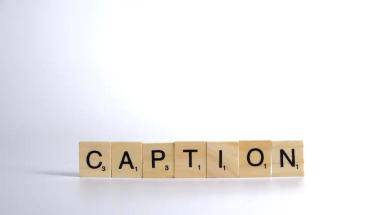
Closed captioning is the process of conveying any audiovisual work into written content that...

Examples of technical translation types are user manuals, handbooks, patent, training materials,...

One of the most important lexical problems of technical translation is polysemy, which refers to...

Copy editing is the process of identifying errors and improving readability in written material....
Related Articles
Join our mailing list to be the first one who receives our newest articles, announcement, and special offers on our services!

Trending Post
UAE Announces Remote Work For All Government Employees
Dissertation Proposal Service: Academic Success
Tips to advance your career-hr.
Mastering Resume Writing With ChatGPT: Prompts And Strategies For Teachers
What Is The UAE Education Strategy For 2030?
Homework Strategies For Students With Learning Disabilities
8 Facts To Know The First Female Emirati Astronaut
UAE Schools Announce Spring Break For Three Weeks
When Will Ramadan In UAE Start? Save The Date
One Month To Ramadan 2024: UAE Astronomer Prediction Dates

- Research Paper

4 VITAL TIPS FOR EDITING A DISSERTATION

WHAT IS A DISSERTATION?
A dissertation is a research assignment part of a Ph.D. or master’s degree course. It is the longest, toughest, and most researched assignment to complete in university life, whose grading directly affects the final results. Therefore, it is suggested that to choose the subject of your interest for the dissertation.
VITAL TIPS FOR EDITING A DISSERTATION
After finishing the dissertation, it is time to edit the dissertation, which is one of the most important steps to do post dissertation writing to give shape to the dissertation both internally and externally. Thus, here are a few tips given by dissertation writing services to help you edit your dissertation in a limited time and productive manner.
1. TAKE A BREAK AFTER FINISHING WRITING
As a dissertation is a long writing process, a lot of time and energy is utilized in researching and writing it. Therefore, after finishing writing a dissertation taking a small break is much needed but not as small as a break of two hours; rather, the break should be of at least a day or 2. After that, you can start editing your dissertation with a fresh mind.
In this way, you will not miss dozens of faults that you would have missed in doing it in a hurry. Taking this break cleans your mind and helps you to concentrate better. So the correct way to do the editing is to spare a week-long time for it and break it down into chapters or 10 pages per day. Remember to do editing always with fresh eyes and a clear mind.
2. DO A GRAMMAR CHECK
Grammar check requires special attention while doing your dissertation. It is not something to be overlooked. After the competition of the break, the process of proofreading starts, where one has to pay special attention to grammar and eliminate any minor or major grammatical errors in the dissertation. Moreover, ensure that every sentence or statement in the dissertation is logical and grammatically correct, as these are the common and most often made mistakes by the writer while attempting a dissertation assignment.
One can take help from some online grammar checker tools or from any professor proficient in grammar to point out, eliminate and edit his grammatical mistakes.
3. KICK OUT SPELLING ERRORS
Particular attention is required to check the spelling, as a spelling check is essential. This step of dissertation editing does not focus on line correction but on the big-picture elements. Spelling errors made by students at the master’s or Ph.D. level do not impress their professors; rather, the absolute authenticity of the dissertation is lost by a single spelling mistake. Therefore, no chance should be taken in it, and every minor to major spelling error should be filtered while proofreading the dissertation.
Also, the dissertation writing service suggests not using an online spelling checker for your dissertation, as these checkers make mistakes. However, you can ask your professor or some senior to assess you in spelling check.
4. STRUCTURE YOUR DISSERTATION PROPERLY
Now the next step after grammar and spelling check is structuring your dissertation. The core format of the dissertation should include an Abstract, Introduction, Literature Review, Methodology, Discussion, Conclusion, Recommendation, and Bibliography. Also, while formatting, make sure to bold your headings and subheadings and set a correct page layout.
Major things like structured body paragraphs, spacing before and after headings, and avoiding double spacing should not be neglected while editing a dissertation, as these structures make the dissertation look organized.
All the editing should be done according to the guidelines provided by the university. Moreover, if there is any problem understanding the format, one should contact their professor for assistance. However, one can also get dissertation editing services online help for the structure to get their dissertation perfectly structured, leaving no points unturned.
CONCLUSION:
The dissertation tests the student’s research ability, and its assessment directly impacts the final grades. Therefore, editing is of great importance. It involves the examination of the paper’s structure and double-checking the chapter. It also involves double-checking whether each resource is appropriately referenced or not
Share This:
Leave a reply cancel reply.
Your email address will not be published. Required fields are marked *
Save my name, email, and website in this browser for the next time I comment.

UAE Announces Remote Work For All Government
Nowadays the weather conditions in the UAE are not good. Rain has affected the

The words‘’ thesis’’ or dissertation’’ are used by plenty of students. Because dissertation writing

The world of human resources (HR) is dynamic, and moving ahead in the career
8 Tips for Publishing Your Dissertation

1. Begin with the end in mind
In Seven Habits of Highly Effective People , Stephen Covey advises folks to begin with the end in mind when undertaking any project. Covey’s advice is especially relevant for dissertators. Often people say that you should write your dissertation and then revise for publication, either as a book or a series of journal articles. I completely disagree with the standard wisdom given by well-meaning folks. Instead, I argue that one should not write a dissertation unless one first has either a specific publisher for the dissertation as a whole or several journals for each chapter in mind before one writes. Furthermore, be sure it’s the best it can be by seeking the help of dissertation editor easily found at a good dissertation editing service.
2. What is a dissertation?
A dissertation is an entry-level professional intervention in a scholarly body of knowledge or research. Writing a dissertation is a major investment of time, money (lost opportunity costs and perhaps hiring a dissertation editor ), care, and, often, worry. So, if you’re going to make this investment, ensure that it will pay off by doing your due diligence before you write.
3. Do your due diligence
Do your research to ensure that the general subject of your dissertation is drawing scholarly interest and publication. You may have someone on your committee who knows your field very well and is a published ‘name.’ If you have such a person on your committee, you’re very lucky because he or she will know immediately if you have a “hot” topic. However, the reality is that you might not have such a person in your academic life. If you don’t, the onus is on you to see if the topic will be publishable.
Through your coursework, you should have been developing an awareness of your subfield. Ideally, you have already been reading heavily in it and know the relevant and major books and journals. Ideally, as well, you’ve been attending conferences and have met the senior scholars in your field.
4. Don’t reinvent the wheel
One thing that you should keep in mind is to never try to re-invent the wheel for your specific topic. If it’s already been said by someone in the field, don’t say it again. While doing so might be an interesting exercise, it won’t get you very far in terms of publication.
5. A dissertation is NOT just a long seminar paper
If you are writing for publication from the get go, you have to be aware that, unlike your seminar papers, which were written to show a specific professor that you knew enough to get an A, your dissertation should be making a fresh intervention in a field. Yes, you have to know the field well, but the primary purpose of the dissertation should be to say something new and interesting, not to demonstrate an understanding of the field.
Your dissertation proposal should amount to one of two things: either a book proposal or a proposal for a series of articles to be published in specific journals. If by the time you write the proposal, you can’t name a prospective publisher or journals that would be interested, then you might have a clue that you need to do some more research or change your topic.
6. Your committee is NOT your primary audience
When you’re actually producing the dissertation, always be thinking that you’re not writing as a student any longer (even though, of course, you are). Rather, you’re writing as a professional developing a voice and making an impact in a field. And, while of course you will have to deal with objections and concerns (and, sometimes, melodrama) raised by specific committee members, remember that you’re not writing primarily to please them. Rather, you’re writing for potential journal editors, peer reviewers, and publishers.
7. Keeping it real: Submit to your committee AND for publication simultaneously
One thing I found helpful when I was dissertating was to actually submit each chapter to a journal at the exact same time that I was submitting to the committee. Thinking publication spurred me to write better and more quickly. And, yes, I actually had the experience of receiving an acceptance letter from a journal even before the committee returned the chapter. While the acceptance letter was personally gratifying, it also helped to keep the committee members from going too far afield in terms of what they were going to have me revise.
8. Some parting suggestions:
In terms of the actual writing of the dissertation, here are some things to keep in mind.
- Your dissertation is not primarily a document designed to show off your exhaustive knowledge of a subject or your ability to use every jargon word you know. Rather, to be publishable, your dissertation should make an argument or series of arguments and support those contentions with enough background information, but not too much.
- By all means, use specialized language when it’s appropriate to do so, but don’t go overboard, and, for goodness’ sake, be careful. Nothing blows your credibility more quickly than using those jargon words incorrectly. If need be, find a good dissertation editing service to polish it for you.
- If you’re working towards publication, also be careful to avoid those “grand gestures” or generalizations about your topic or civilization itself. Somehow, many of us, maybe by reading bad scholarship written in the 1940s and 1950s, got it into our heads that scholars should make grandiose statements about entire disciplines or even nation states. Remember that the only people who can make these kinds of statements are very senior scholars, who really do know everything and everybody in a particular field. Newbie professionals can’t get away with the grand gestures. Save them for the end of your career.
- Check how Edit911 can transform your dissertation into a book.
In conclusion, writing a dissertation can be a very fun and rewarding experience. This experience can be even more rewarding if, following the advice of Stephen Covey, you begin with the end in mind and map out a publication plan for your work.

Share This Story, Choose Your Platform!
Related posts.

7 Reasons Your Business Should Have a Blog

How To Use Quotations In Dissertations

The Scholarly Voice in Academic Writing
+1 (888) 985-3395
Live chat available 7 days a week, 7am-7pm EST.
We’re hiring!
© Copyright 2023 Edit911, Inc. | Terms of use | Privacy Policy

IMAGES
VIDEO
COMMENTS
Others are looking for you to show your depth of knowledge and your ability to connect areas. 9. Language use in your subject area. Within your subject area, your academic discipline, there will be a lot of very specific language. As a dissertation writer, you are likely well aware of this already.
Some tips that apply to both editing and proofreading. ... especially if you are editing a large document like a thesis or dissertation. Once you have identified a pattern, you can develop techniques for spotting and correcting future instances of that pattern. For example, if you notice that you often discuss several distinct topics in each ...
4. Take breaks; proofread bit by bit. Avoid proofreading your entire dissertation in one go as you're likely to lose focus or get bored. Your attention might drift and you might end up missing small, hard-to-spot mistakes. Instead, try breaking down your dissertation in little segments and proofread it bit by bit.
Tips for Successfully Editing and Revising Ph.D. Thesis. Take a break: Once you finish your thesis, give yourself a few days or a week to relax and recharge your energies before return to it with a refreshed perspective. Taking a break from your work can help you to approach it with fresh eyes. Pay attention to detail: Take time to carefully ...
Edit your dissertation with a view to making your examiner's life easier. Because I'm sure you'll agree that having a happy examiner can only be a good thing. And that's what editing your dissertation is really all about: making your writing as clear, consistent and correct as you can for your frazzled examiner. Caitlin Hamilton.
Here is a dissertation editing Tips for you 1. Create an appendix to include all the extra information. Appendices are present in every research paper, academic piece, article, dissertation or thesis for the writer to be able to explain certain points in their dissertation in detail. However, these extra details are not directly connected to the dissertation or the findings and analysis.
Here is a list of Do's and Don'ts when editing and proofreading your dissertation: Tips for Proofreading a Dissertation Proofreading is an important step. Here are some tips for proofreading a dissertation. Grammar Check: Make sure the spelling and grammar are correct. If there are any mistakes, correct them immediately before you move on ...
Four tips for editing a dissertation. The tips mentioned here are not specific to dissertation editing, and one can also employ them when editing other academic documents. 1. Allotting sufficient time to the process. Dissertations are lengthy and extensive documents spanning hundreds of pages and comprising tens of thousands of words.
Whether you are at undergraduate or postgraduate level, editing your dissertation is a labour-intensive but rewarding endeavour that significantly enhances the quality and impact of your scholarly work. By following these top tips for dissertation editing, you can refine your manuscript to meet the highest standards of academic excellence.
Thesis and Dissertation: Getting Started. The resources in this section are designed to provide guidance for the first steps of the thesis or dissertation writing process. They offer tools to support the planning and managing of your project, including writing out your weekly schedule, outlining your goals, and organzing the various working ...
Editing your dissertation is an indispensable step toward achieving academic distinction. This guide provides a comprehensive overview of the editing process, from initial considerations to advanced techniques for enhancing clarity, cohesion, and style. Remember, a well-edited dissertation not only demonstrates your expertise and hard work but ...
The following tips and tricks will help you do that. Some of the editing and proofreading steps we suggest will sound obvious, but it's surprising how many candidates neglect them. That's why it's important to approach the process as a true beginner. The Ultimate Step-By-Step Guide to Editing a Dissertation. The first step is to take a break
Reworking your first draft. Finishing your first draft is a milestone in the process of writing a dissertation. Until this point, your ideas may have been quite hazy, but now the real work can start in reorganising and refining your piece. Your supervisor's comments should provide you with a clear sense of how you can improve your work.
Tips to write dissertation recommendations: Offer only viable, commercial, and well-founded recommendations. Target your recommendations toward key agents in the professional field. Use figures to depict different types of recommendations. Prepare an action sheet if it complements the thesis. 5. Edit and proofread your dissertation
Don't try to edit the entire dissertation in one sitting Since your dissertation may exceed a hundred pages, it's impossible to edit it thoroughly in one sitting. If you work in a rush, you'll omit dozens of mistakes. So, give yourself up to a week for editing and edit by chapters or, let's say, 15 pages a day.
4. Run a spell check. You can either do this before you do a line-by-line checking or after you do that. Set the style of English (UK or US) that you are following for the document as default and run a spell-check. The spell-check is a quick way to spot and correct the spelling errors in your document.
1. Separate writing from editing. The first piece of advice for students when editing is to make sure that writing and editing processes are done at separate times. It's important when writing your assignment that you do not interrupt your natural flow by worrying too much about what you've written and how you've written it.
Tips for editing a dissertation. If you think that you can cope with editing a dissertation by yourself, good for you. However, with the following tips, you will handle this task much easier: Avoid repetition. Composing a dissertation, you might repeat the same ideas but write them in different words and phrases. Try to make sure your ...
A dissertation is a paper that candidates are required to work on to be able to get a degree such as a Master's degree. Editing a dissertation is usually done by a professional editor who knows how to correct dissertations in the most effective way possible. Editing a dissertation has so many benefits and can be very useful if done by ...
Read the basics first. Start with the summary on the back cover. Peruse the table of contents and chapter titles. Scan chapter titles and subheads. Read the forward and introduction. Then move into reading chapter one or the first page of each chapter. You'll be amazed how much you can learn about a book and its thesis from these basics.
Thus, here are a few tips given by dissertation writing services to help you edit your dissertation in a limited time and productive manner. 1. TAKE A BREAK AFTER FINISHING WRITING. As a dissertation is a long writing process, a lot of time and energy is utilized in researching and writing it.
1. Begin with the end in mind. In Seven Habits of Highly Effective People, Stephen Covey advises folks to begin with the end in mind when undertaking any project. Covey's advice is especially relevant for dissertators. Often people say that you should write your dissertation and then revise for publication, either as a book or a series of journal articles.